Daphne Taras
Dean, Ted Rogers School of Management
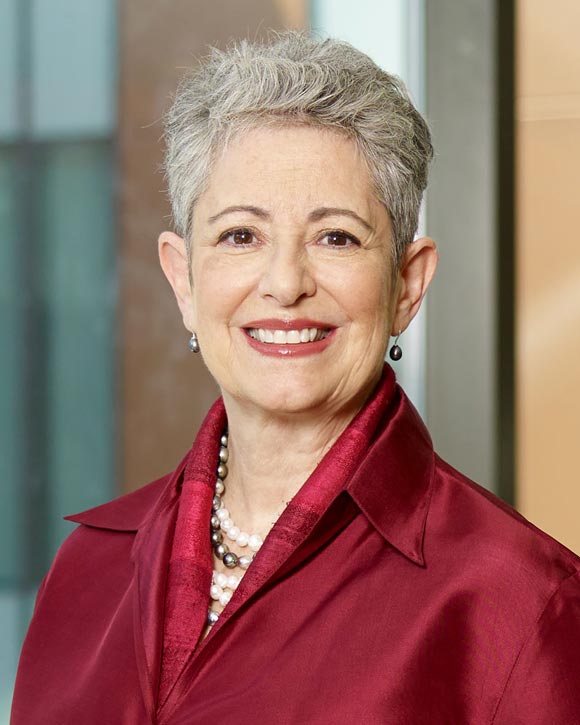
Daphne Taras
Dean, Ted Rogers School of Management
Like all of you, the past year has required our school to make adjustments, to be innovative and to be nimble as we learn to function within an environment that at times seemed to shift daily. We didn’t make excuses. We got down to work. When our backs were against the walls, this was our finest hour.
I’m proud to say we have emerged from this tempest even stronger than before. It is a tribute to the commitment of our staff, the ingenuity and passion of our faculty and the energy and empathy of our students.
We embraced change, and were productive and innovative beyond expectation. We dug in and did the research, recruited and hired talented faculty and worked tirelessly to provide students with a rewarding university experience. Together, we did more than just endure these challenges. We learned to thrive in them because it brought out the best in us.
Our 2021 Report highlights some of the stories and successes of Ted Rogers School’s faculty, students, staff and alumni. The content of the report is tied together by three themes: Diverse, Dynamic and Distinguished.
We are diverse because of the broad range of impactful research and because we attract faculty and students from a variety of backgrounds, who bring their perspective and experience to enrich our community.
We are dynamic because we adapt to and interact with the changing world of business and offer students unique opportunities to gain the skills, experience and credentials they need to achieve career success.
And we are distinguished because of the numerous awards and accolades we have received both nationally and internationally, which have raised the reputation of our school.
Our competitors should take notice: the Ted Rogers School is unstoppable. And as our namesake and patron Ted Rogers was fond of saying: “The best is yet to come.”
Thank you, and enjoy this look back at the achievements of the past year.
In April 2022, the university announced our new name of Toronto Metropolitan University, which will be implemented in a phased approach. Learn more about our next chapter.
undergraduate students
graduate students

The Ted Rogers School’s academic and career programs reflect the changing nature of business to produce graduates who are ready for the current and future workforce, and our support programs help students in every stage of their university journey achieve success.
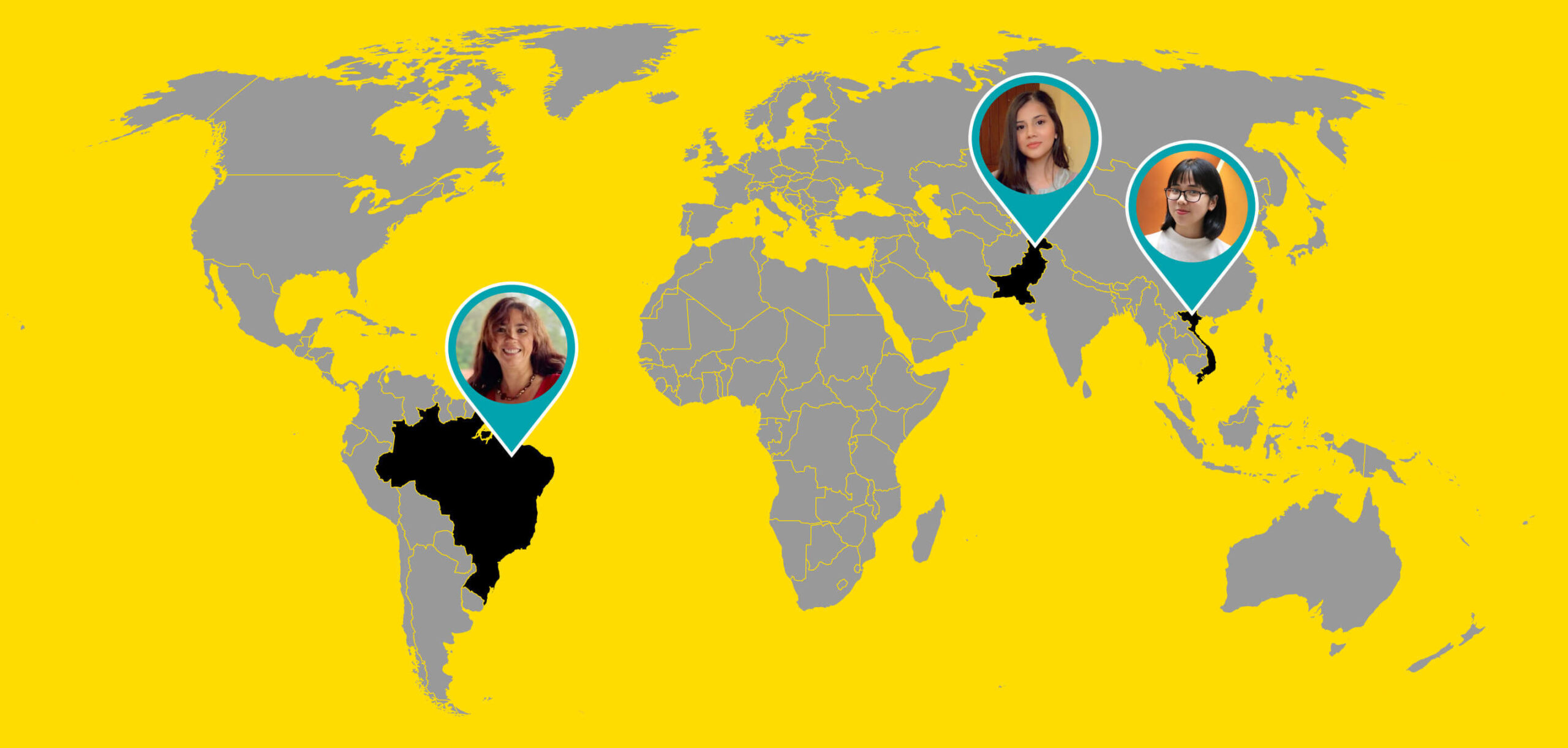
Students at the Ted Rogers School have for many years had ready access to peer academic support to help reach their academic goals, but during COVID, that support has in some cases come from across the globe.
In the Winter 2021 semester, three highly-committed Ted Rogers School students working at the Academic Success Centre (ASC) offered support to fellow students in Canada, even though – for various reasons – circumstance meant they were offering that help from abroad.
Academic Peer Helpers (tutors) support their peers’ development of confidence with course material and learning strategies, and also encourage students to develop self-regulation strategies to thrive academically.
“It’s great that the students were able to stay where they felt safe and still found ways to engage with their peers and support fellow Ted Rogers School students,” says Sandy Carpenter, Student Success Facilitator at ASC.
Third-year Accounting & Finance student Aleenah Hassan worked as an Academic Peer Helper from Pakistan. She returned to Pakistan in May 2020 because it was an unpredictable time with the pandemic and because she started feeling homesick. While Hassan initially found it hard to manage the 10-hour time difference, by the Winter semester, she was better organized and made sure to also add in time for herself during the day.
Third-year Hospitality & Tourism Management student Casey Vo worked as an Academic Peer Helper from Vietnam. Since school was going to be online for the Fall 2020 semester and she didn’t want to pay expensive Toronto rent, she returned home in August 2020. Despite the 12-hour time difference, Vo said it was not too difficult to do her work as a tutor because she had school in the Eastern Time Zone as well.
Fifth-year Business Technology Management Co-op student Ana Paula Lima has been a Peer Academic Coach since Fall 2019. She returned home to Brazil in December 2020 to spend time with her aging mother and to escape some of the loneliness caused by the pandemic. Thankfully for Lima, there was only a two-hour time difference in Brazil, so it didn’t interfere with work or school.
It’s great that the students were able to stay where they felt safe and still found ways to engage with their peers and support fellow Ted Rogers School students.
Sandy Carpenter
Student Success Facilitator, Academic Success Centre
The Creative School at Ryerson University (formerly the Faculty of Communication and Design) and the Ted Rogers School launched a groundbreaking concurrent MA/MBA that will provide students with an opportunity to earn a dual interdisciplinary degree with the potential to launch them into the highest levels of executive and leadership roles within the creative industries. The innovative study pathway will bring together the best of The Creative School’s Master of Media Production (MA), and the Ted Rogers MBA to prepare graduates with hybrid programming and combined skill sets, making them highly sought after in the creative fields.
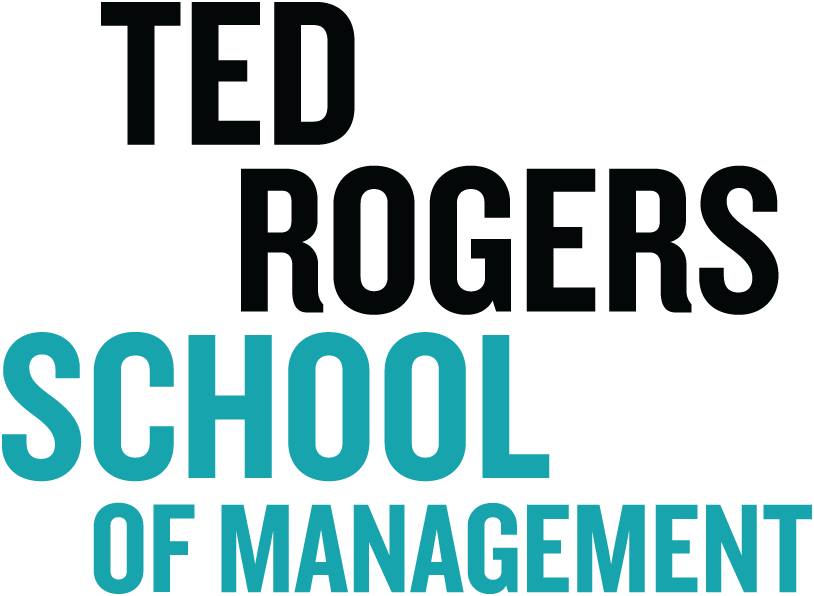
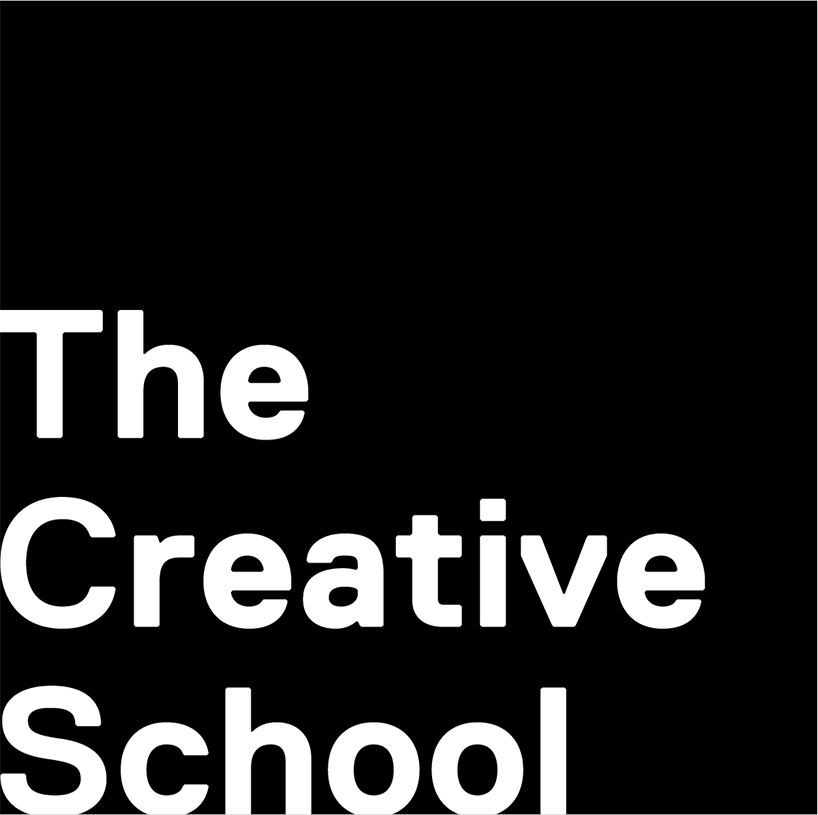
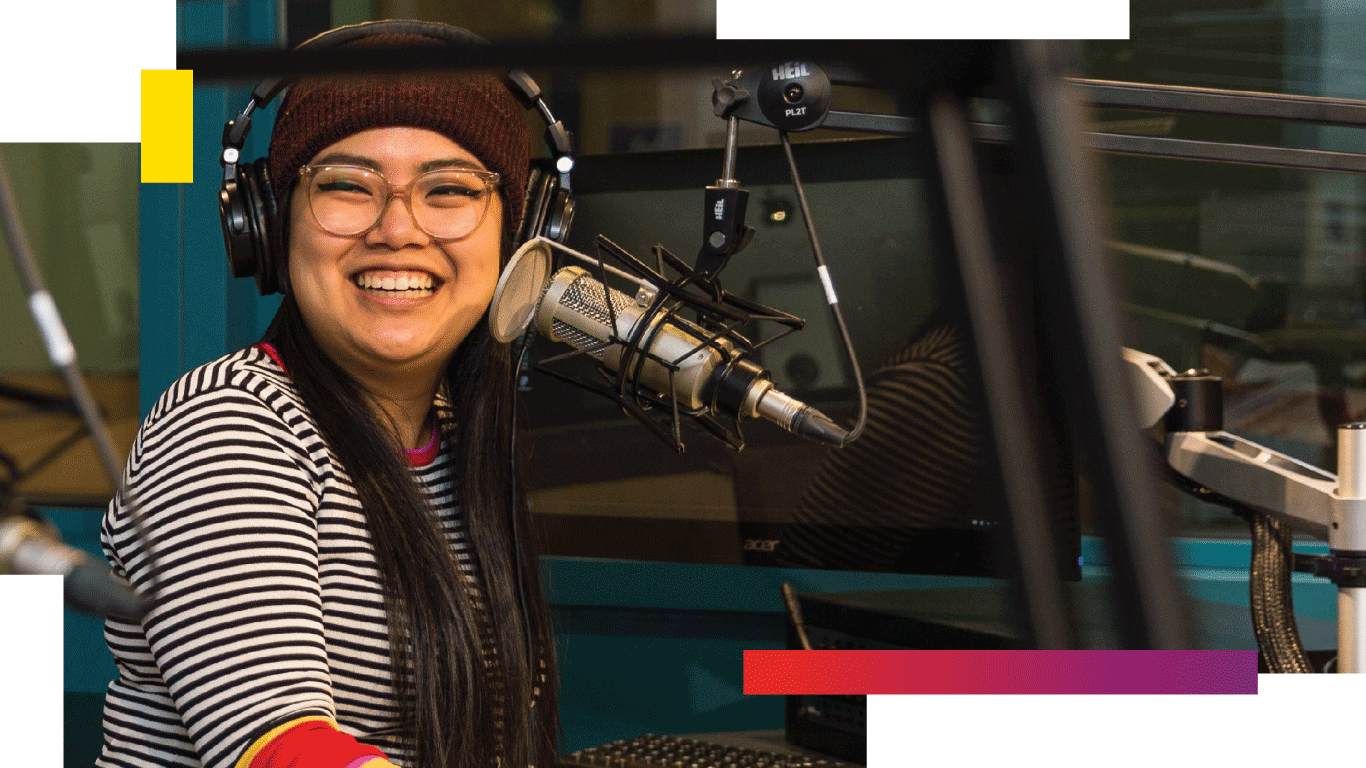
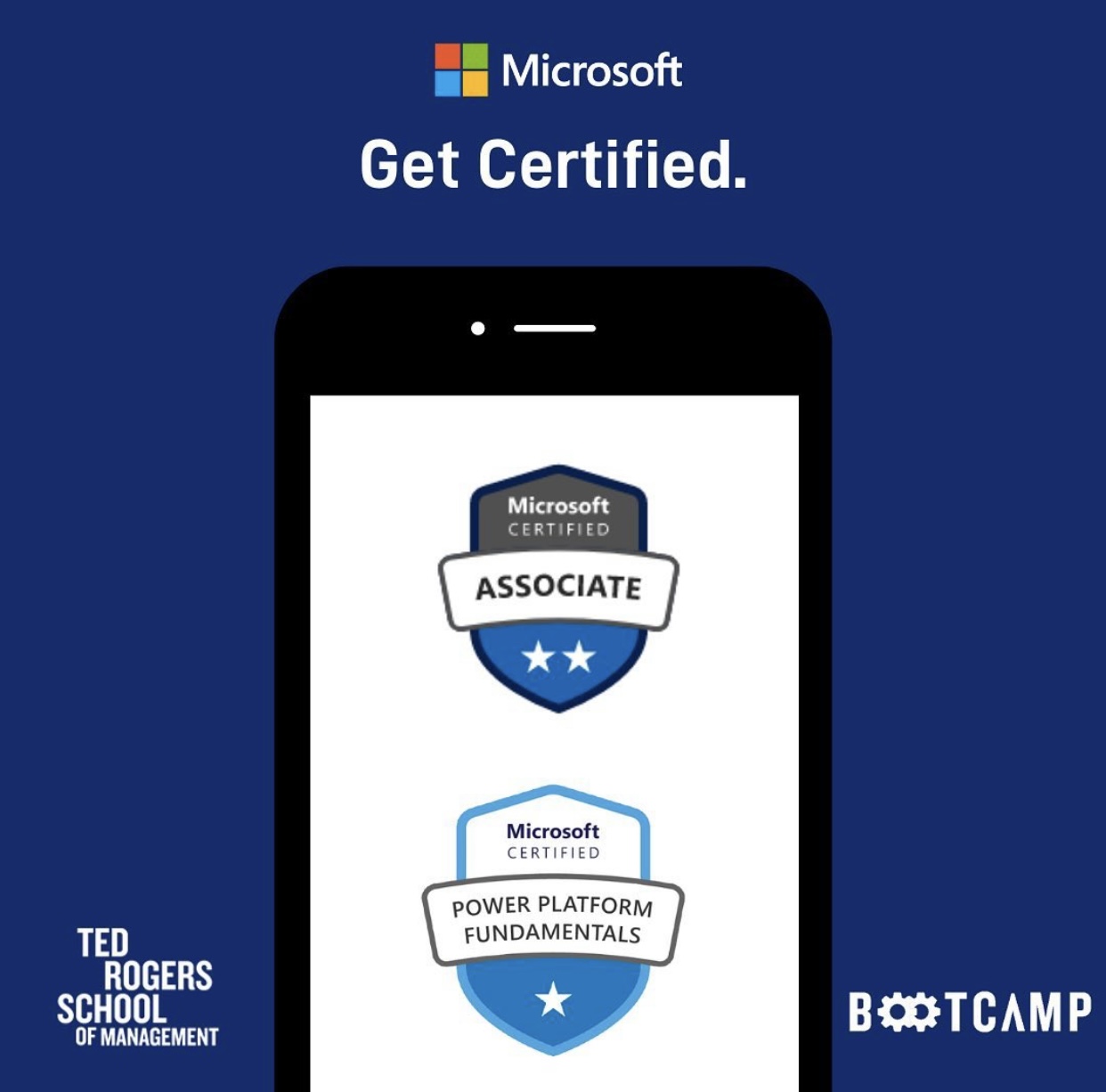
The Ted Rogers School’s award-winning Bootcamps – where students acquire the skills most sought by employers – now have the added value of Microsoft Certification.
The Ted Rogers School will provide training in high-demand skills such as cloud, data and AI with Microsoft Certifications, further enhancing the employment opportunities for students.
“Since Bootcamps were introduced at our school just three years ago, we’ve had more than 55,000 registrants. We truly are at the forefront of university microcredentialing in the skills employers value the most,” said Daphne Taras, Dean of the Ted Rogers School. “From Excel to Power BI, students are teaching students, in the way students want to learn. The model is astonishingly successful.”
“This collaboration with Microsoft Canada helps take the program to the next level. Now our students will bring even more value to the workplace,” said Dr. Allen Goss, Associate Dean, Students at the Ted Rogers School.
Under the new program, which is part of Microsoft Canada’s Canada Skills Program, student facilitators of select Bootcamps will become Microsoft Certified. “This will signify that our students have learned these important skills from the very best peer facilitators who have learned from the very best at Microsoft Canada,” said Dean Taras.
The Ted Rogers School developed Bootcamps to close the skills gap between core business school curriculum and the fast-paced implementation of new technologies in the modern, evolving workplace.
“Our collaboration will develop the digital skills graduates need to contribute to Canada’s digital economy,” said Marc Seaman, Vice President, Education Sector at Microsoft Canada.
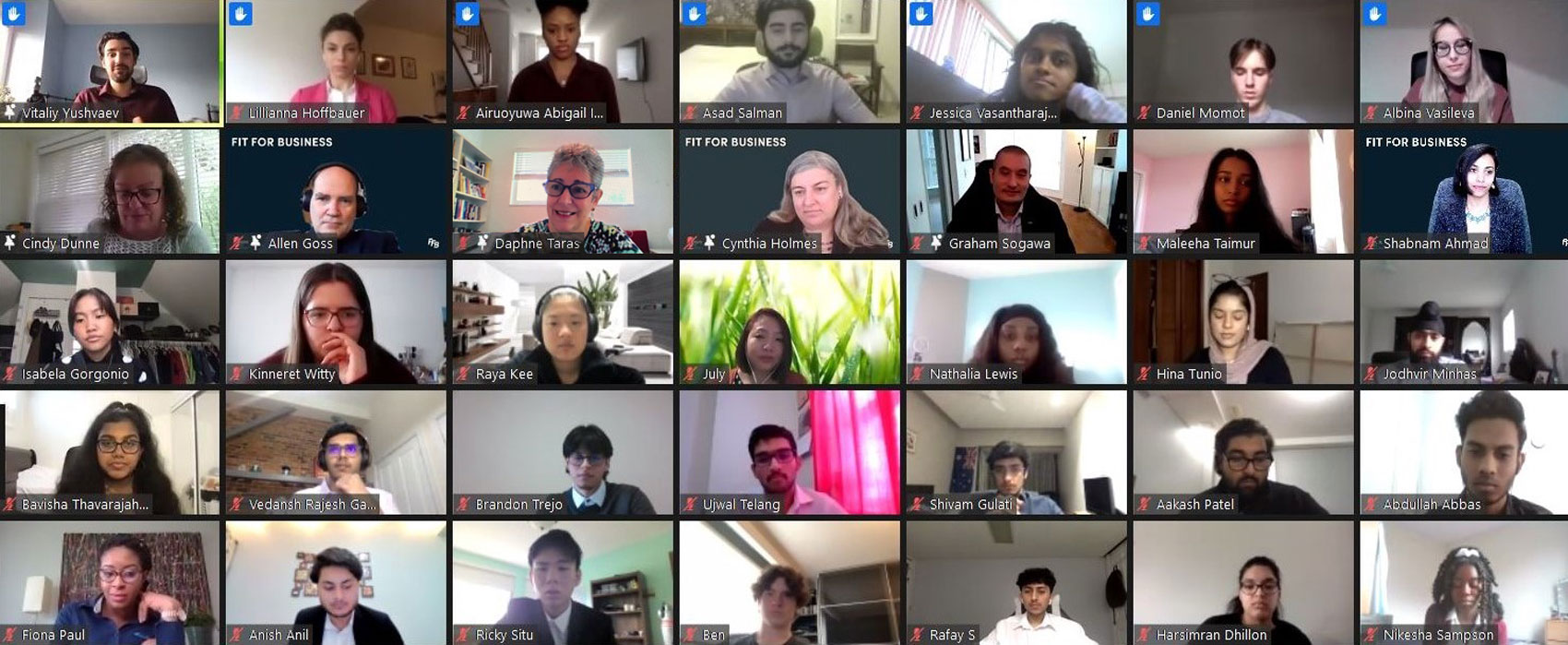
Image: Fit for Business Top 10% end-of-year ceremony
Starting university for the first time can be difficult for students, particularly during a pandemic when school is completely online. Ted Rogers School’s Fit for Business (FFB) program was there, however, to help students with this transition by keeping them connected, engaged and informed.
“The transition to university is more than just adjusting to new classes. It can often be the first time that students have lived independently, and students consistently tell us that they are worried about not making friends or feeling isolated,” says Dr. Allen Goss, Associate Dean, Students. “The Ted Rogers School has a constellation of supports for students, but it can sometimes be difficult and a little daunting for new students to know where to reach out for the help they need.”
That’s why Fit for Business was launched in August 2020 as a dedicated transition program for first-year students.
“Students were going through their first year of university completely online and studying from around the world in their own unique situations. We knew that creating a community for our students was more important than ever,” says Shabnam Ahmad, Fit for Business Lead. “With the Fit for Business program, we empowered students not only with a supportive community, but also a path to achieve success right from the start of their university experience.”
The foundation of Fit for Business is the TedPack – a cohort of students that has the same courses in their first term. Dr. Cynthia Holmes, Associate Dean, Faculty and Academic, created TedPacks to help build a sense of community for first-year students.
Ahmad built on the TedPack structure by designating first-year students as TedPack leaders and adding senior students to each group as TedPack mentors. “This created the feeling of belonging which students often said was their biggest fear about the transition to university,” Ahmad explains.
In addition, through a personalized weekly FFB email – one centralized channel exclusive to first-year students – students receive communication on everything needed to navigate their first year.
And, to encourage first-year students to take advantage of the services and unique offerings available, the FFB program rewards them with TedPoints for engaging beyond the classroom. The more TedPoints collected, the more opportunity there is for students to redeem them for rewards, such as access to senior leaders’ chats and sold-out Bootcamps.
With the Fit for Business program, we empowered students not only with a supportive community, but also a path to achieve success right from the start of their university experience.
Shabnam Ahmad
Fit for Business Lead

Bloomberg Businessweek’s 2021-22 Business Schools Survey


Corporate Knights’ 2021 Better World MBA Ranking
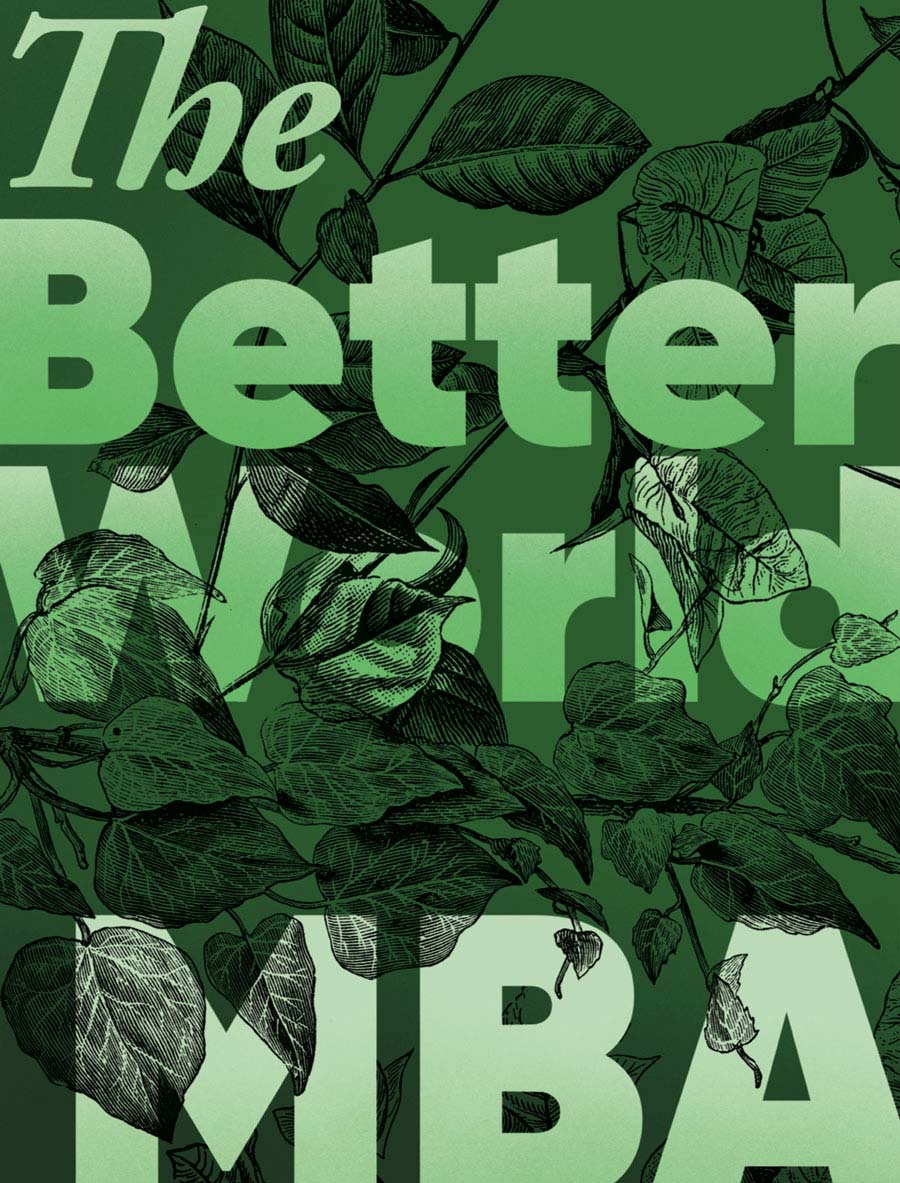
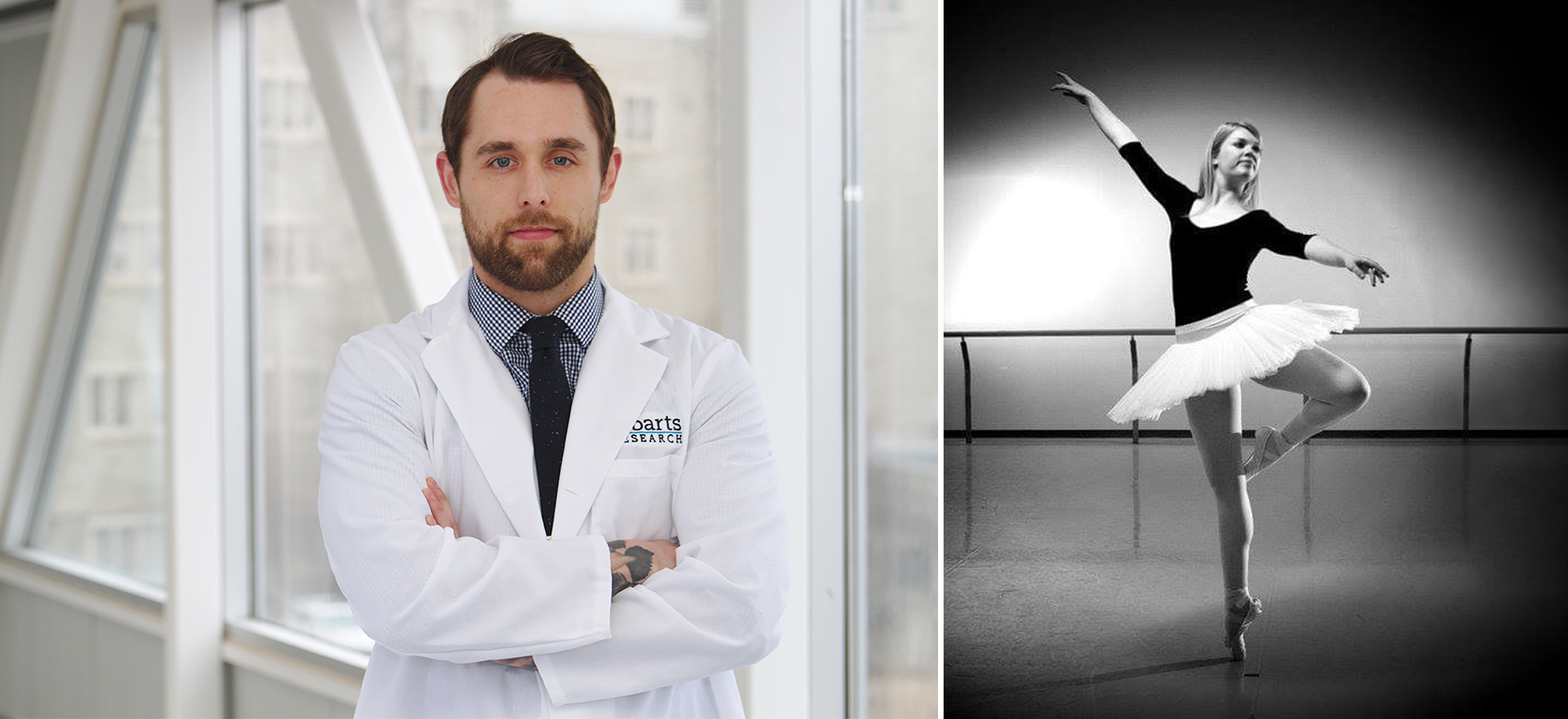
While a “typical” MBA student of the past might have had a business degree and corporate work experience, students in today’s Ted Rogers MBA program come from a range of academic and professional backgrounds.
“One of our program’s great strengths is diversity, and that includes the varied experiences our MBA candidates bring with them,” says Dr. Donna Smith, Graduate Program Director, MBA Program. “Having students from different education and work backgrounds is important because they have diverse experiences and viewpoints to bring to the table while in the program. It also gives these students the opportunity to amplify their passions upon graduation and creates a broader alumni network.”
Julia Gropper, for example, performed in both classical ballet and musical theatre productions in Germany before coming to Canada to take the Teacher Training Program at the National Ballet School. After nearly a decade of teaching ballet and barre fitness, Gropper transitioned to a career in retail management. She made the leap to do her Ted Rogers MBA so she could advance to more senior management roles.
“My work as a business manager at a dance store fuelled my passion and keen interest for sales/management and marketing,” says Gropper. “In order to fully transition into roles outside of the dance world, I needed to invest in formal and in-depth education to expand my current knowledge and to advance into more senior management positions.”
Gropper, who holds a Bachelor of Fine Arts in Dance and Psychology, was drawn to the Sport Business focus of the Ted Rogers MBA program.
“The small class sizes and more personal experience at the Ted Rogers School, along with the fact that the Ted Rogers MBA is known as one of the most collegial and collaborative MBA programs in Canada also influenced my decision,” she explains.
Gropper was able to collaborate with her classmates and also tap into her dance background during the MBA Games, where she choreographed the team’s dance for the Spirit competition.
Medical Biophysics PhD graduate Patrick McCunn, meanwhile, has been doing postdoctoral research in biomedical sciences and neurosciences and mental health for over a year. He started his Ted Rogers MBA part-time, while also pursuing his Law degree at Ryerson, because he wants to gain the necessary skills to work with start-ups to help bring their medical technologies to life.
“The Ted Rogers MBA program truly invites innovation and supports the entrepreneurial spirit of its students,” says McCunn. “Innovation and entrepreneurship are difficult, but Ryerson is certainly doing their part to make them accessible with hubs like the DMZ and the Legal Innovation Zone. I believe the education and opportunities I have here will give me all the tools needed to achieve my future goals.”
One of our program’s great strengths is diversity, and that includes the varied experiences our MBA candidates bring with them.
Dr. Donna Smith
Graduate Program Director, MBA Program


Thanks to a generous donation renewal, Retail Management students at the Ted Rogers School will continue to have access to industry-leading software that will help set them up for career success.
Blue Yonder, formally known as JDA Software Group, extended their ongoing relationship with the Ted Rogers School by donating software and license agreements valued at nearly $3 million USD to allow students to gain important technical skills before they graduate. The initial gift of retail software applications was made in 2003 by Jim Armstrong, co-founder and former chairman of JDA Software, who was a student in Ryerson’s Mechanical and Industrial Engineering program in the 1970s.
The software donated to the school has enabled the Retail Management program to incorporate Blue Yonder’s supply chain solutions into its curriculum. The goal is that students will gain valuable knowledge and experience with the software that will make them more marketable upon graduation. As a leader in the sector, Blue Yonder’s client list includes PepsiCo, Best Buy, Canadian Tire and many more of the world’s leading brands.
“This software is widely adopted by retailers, and the Ted Rogers School of Retail Management is the only post-secondary program in Canada to incorporate its use into a Bachelor of Commerce degree curriculum,” says Sean Sedlezky, Manager, Program Design in the School of Retail. “Our graduates will therefore be able to demonstrate a unique set of skills to future employers.”
Blue Yonder software is used in the lab component of the Visual Merchandising and Space Planning course (RMG452), and enables students to plan in-store displays, window and fixture design and configuration.
The Ted Rogers Sales Leadership Program has achieved Associate Member status in the University Sales Center Alliance (USCA), making Ryerson the first Canadian university to be accepted into this group. The USCA is a consortium of sales centres connecting university faculty members with many different backgrounds and areas of expertise. Launched in 2018, the Ted Rogers Sales Leadership Program provides specialized experiential learning opportunities for emerging sales leaders aimed at developing professional sales skills. It is one of the first programs of its kind offered at an English-speaking Canadian university.
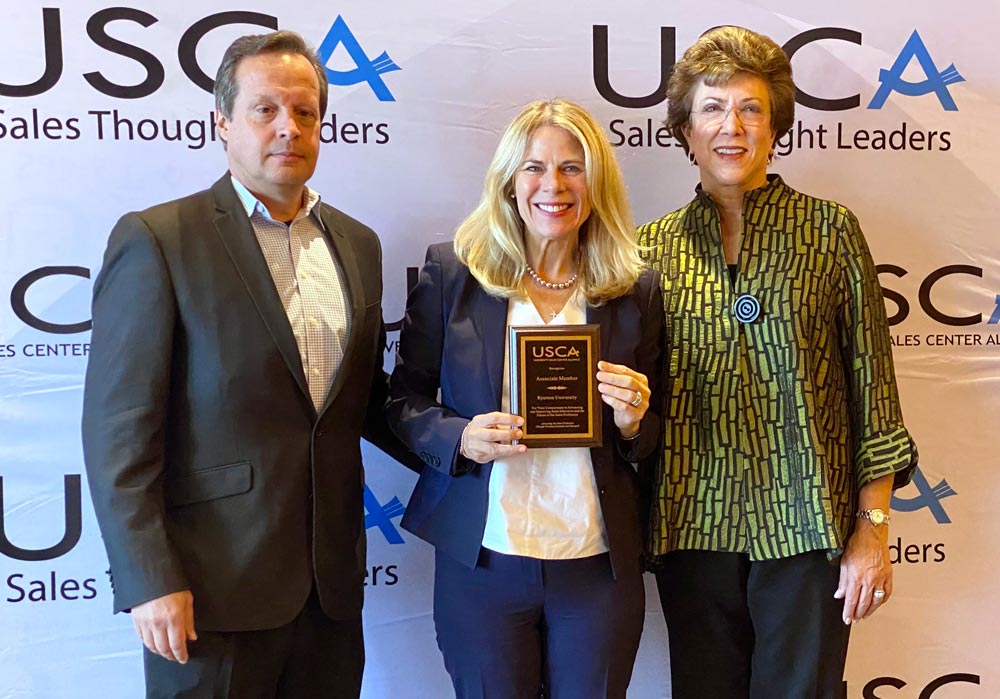
Dr. Karen Peesker (centre), Director of the Ted Rogers Sales Leadership Program, receiving Associate Member recognition from the University Sales Center Alliance (USCA)

There will now be more opportunities for Master of Health Administration (Community Care) students to certify their skills thanks to the program’s partnership with the Canadian College of Health Leaders (CCHL).
Through this agreement, MHA(CC) students will be able to work toward obtaining their Certified Health Executive (CHE) designation, the only certification program for Canadian health leaders. This credential offers individual leaders several benefits, including support for lifelong learning in health services leadership, assistance with career advancement and peer recognition, and also serves as an essential career designation.
The CCHL is a national, member-driven, nonprofit association which strives to provide the leadership development, tools, knowledge and networks that members need to become high impact leaders in Canadian healthcare.
“We are excited about this collaboration with Ryerson University, who show their commitment to health leadership by committing to have the CHE as a preferred designation for their students,” says Brenda Lammi, the CCHL’s Vice President, Leadership and Professional Development.
The MHA(CC), launched in 2018, is a professional graduate program at the Ted Rogers School that addresses the demand for skilled managers in community healthcare and support. It is the first of its kind in Canada.
“We are both privileged and proud to be entering into this alliance,” says Dr. James Tiessen, MHA(CC) Program Director. “It offers terrific opportunities for our students to develop the skills required to lead changes in the community care sector and build their careers.”

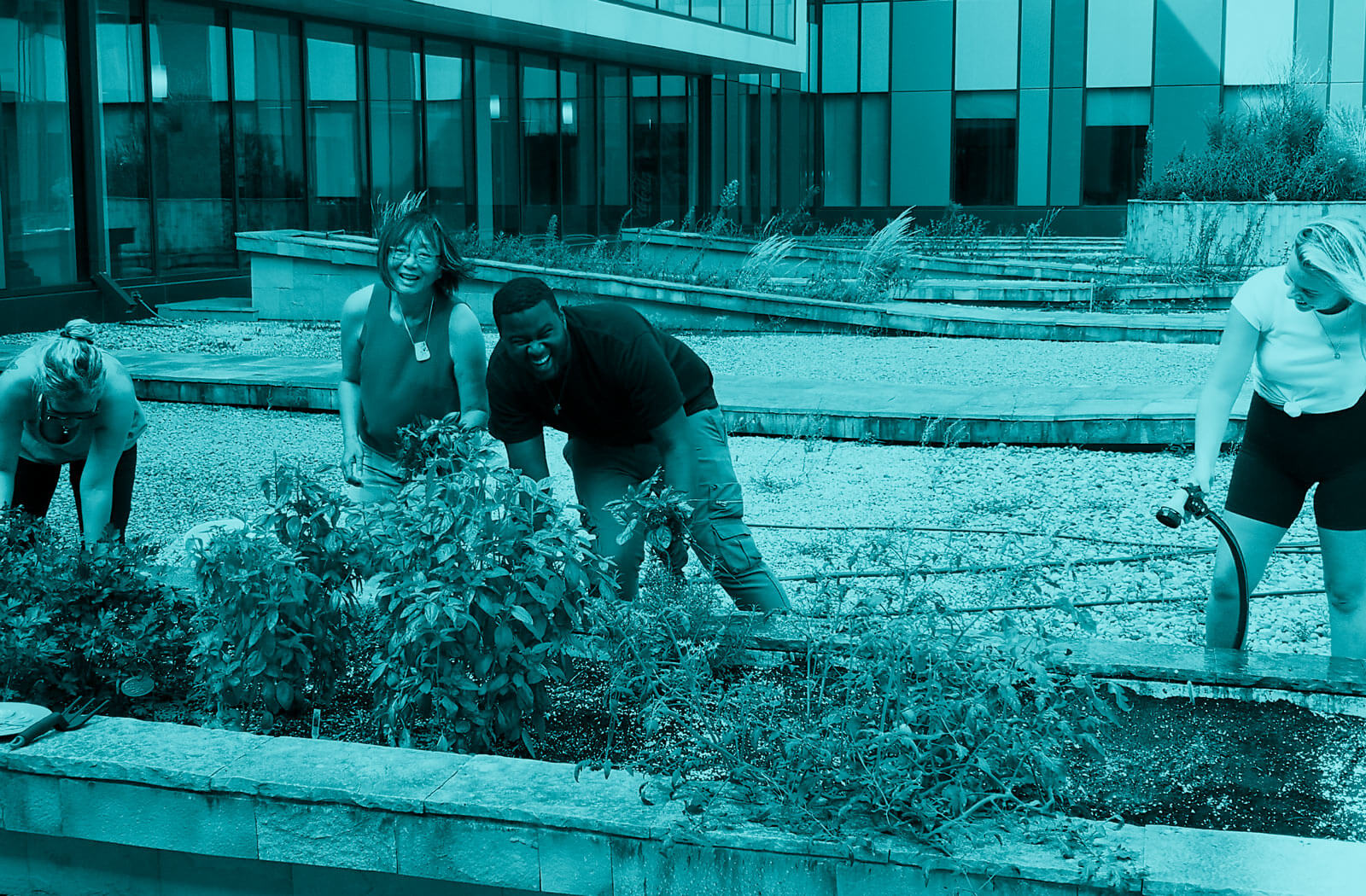
Ted Rogers School students, alumni, faculty and staff have used their skills, time and resources to help others and give back to improve the lives of those in the community, both within Ryerson and outside of it.
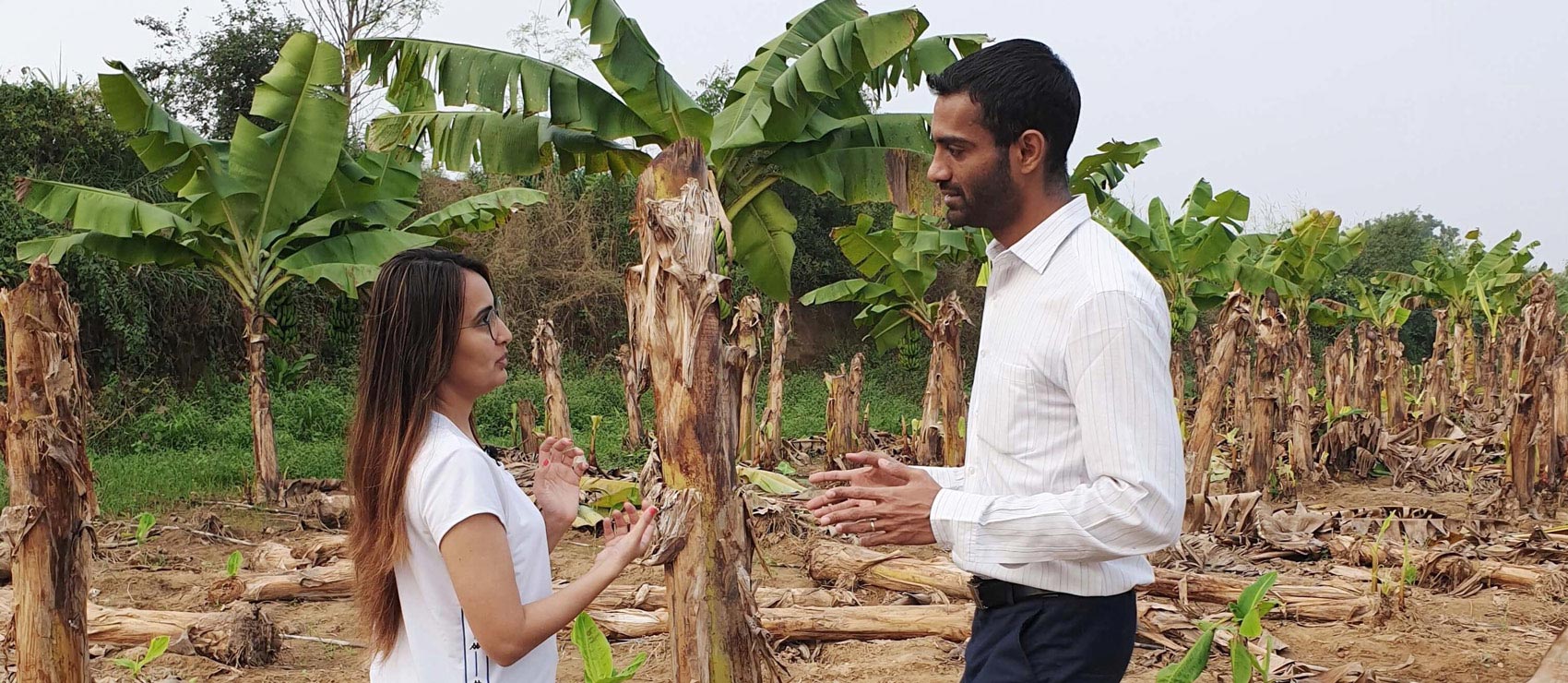
Image: Chirag Virani (right) with his business partner at a banana farm in India
Chirag Virani took the entrepreneurial acumen he developed in his Ted Rogers MBA and applied it to a global problem – access to sanitary pads that were more environmentally sustainable.
Learning about the lack of access to sanitary pads in many countries and that most products contained harsh chemicals and a lot of plastic, Virani (Ted Rogers MBA, 2012) wanted to change that. This led him and his business partner to create the company Sparkle, which makes plastic-free, chemical-free and sustainable sanitary pads from plant-based ingredients, and donates a pad to a girl in need for every one sold.
Sparkle spent over two years developing patent pending technology to efficiently and economically extract banana fibre from banana stem agro-waste to make sanitary pads. These pads are made from a combination of banana fibre, bamboo fibre and corn starch, and can biodegrade in about six months after disposal. The company uses locally sourced banana fibre in India, which provides extra income to farmers each harvest. Around 800,000 hectares of banana plantations generate roughly 64 million tonnes of agro-waste there.
Coming from a technical background, Virani gained the critical business skills needed to start Sparkle through the Ted Rogers MBA program.
Before pursuing his MBA, Virani had completed a bachelor’s degree in mechanical engineering. He wanted to apply his engineering skills and knowledge to solve real world problems. He decided to do an MBA because he wanted to learn more about business before starting a social enterprise.
“Coming from a technical background, my Ted Rogers MBA equipped me with required tools in business development, sales, marketing and entrepreneurship that have helped me with my start-up, Sparkle,” he explains.
Virani believes that if every company takes at least one positive action or initiates one socially responsible campaign, we can make this world a better place. “As responsible individuals and entrepreneurs, we should aim to find innovative solutions to today’s key challenges,” he says.
“Without access to sanitary pads, millions of girls and women in low and middle income countries use less hygienic alternatives during their periods, risking infection,” Virani explains. Through Sparkle’s “Buy One, Give One” initiative, every time a customer purchases one of their pads online, the company will donate a pad to a girl in need. With access to pads, girls can participate in school, engage socially and carry out daily activities with dignity.
As responsible individuals and entrepreneurs, we should aim to find innovative solutions to today’s key challenges.
Chirag Virani
Ted Rogers MBA graduate

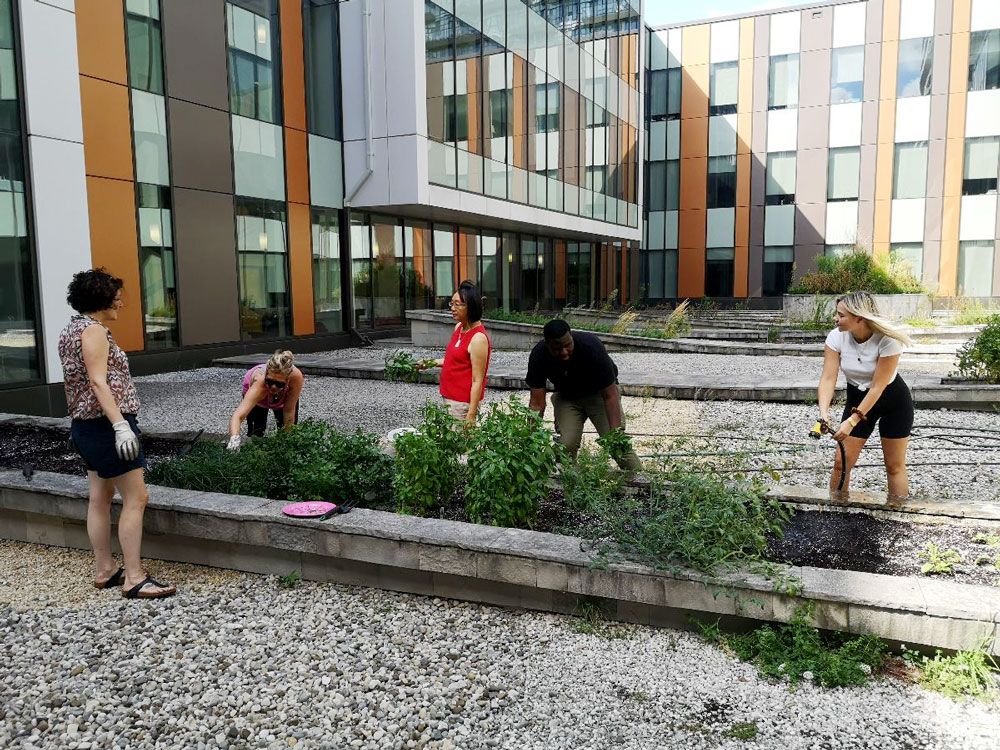
Indigenous Peoples have always known that plants are our helpers, and offer powerful medicines that improve physical, mental and spiritual health. In response to Canada’s Truth and Reconciliation Commission’s Calls to Action, the Ted Rogers School plans to create an Indigenous healing garden in the outdoor courtyard of the school to help Indigenous students and staff feel at home on campus and to educate the entire Ryerson community about aspects of Indigenous culture, while also addressing the mental health and wellbeing of students.
Currently, the school’s 7th floor courtyard is home to the Ted Rogers Urban Garden – a micro food-security garden that grows a variety of vegetables, herbs and fruit. It will act as a catalyst for the new Indigenous healing garden that is planned.
Learn more about the initiative
Executive Chef Tommy McHugh, Hospitality & Tourism Management Program Director Dr. Frederic Dimanche and Chief Administrative Officer Diane Winiarz donated about a tonne of food from the Ted Rogers School kitchen to our neighbours at Unity Kitchen at the Church of the Holy Trinity.
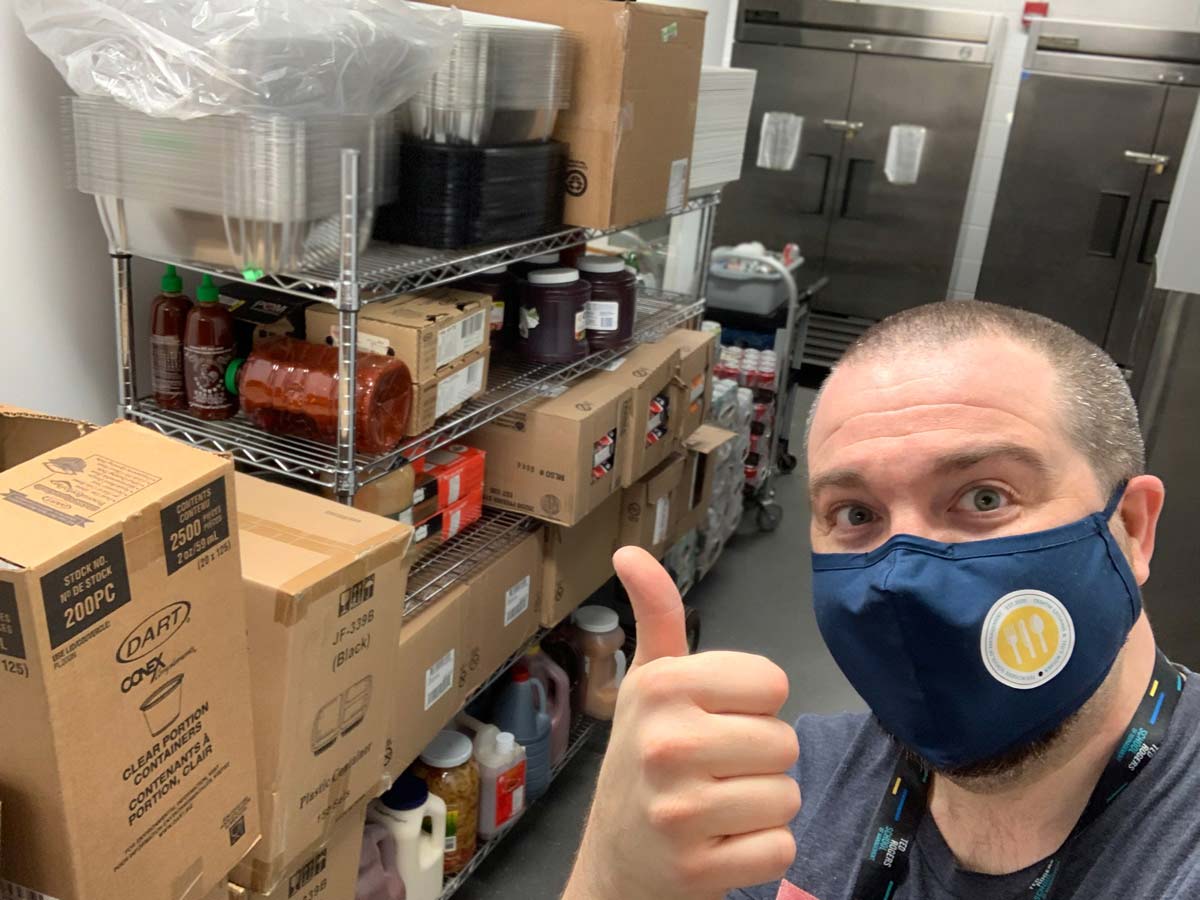
Executive Chef Tommy McHugh with food donated to the Church of the Holy Trinity
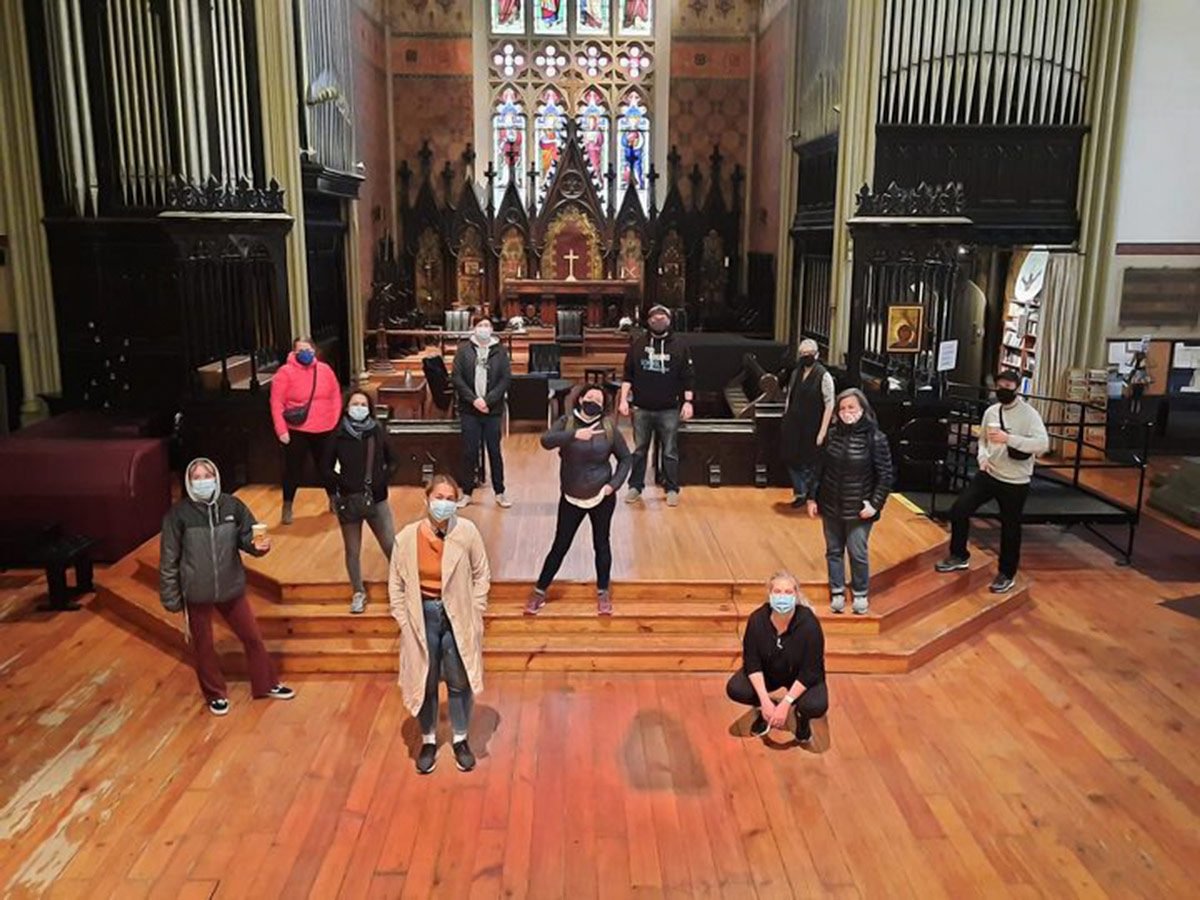
Ted Rogers School volunteers at the Church of the Holy Trinity
Members of the Ted Rogers School volunteered at the 5th Annual Thanksgiving Community Luncheon, a collaboration with Unity Kitchen at the Church of the Holy Trinity.
Dr. Karen Peesker’s Hospitality and Tourism Sales course (HTM604) raised funds for a Sales Student COVID Relief Fund, which was used to provide a bursary for 10 sales students who were greatly impacted by COVID-19.
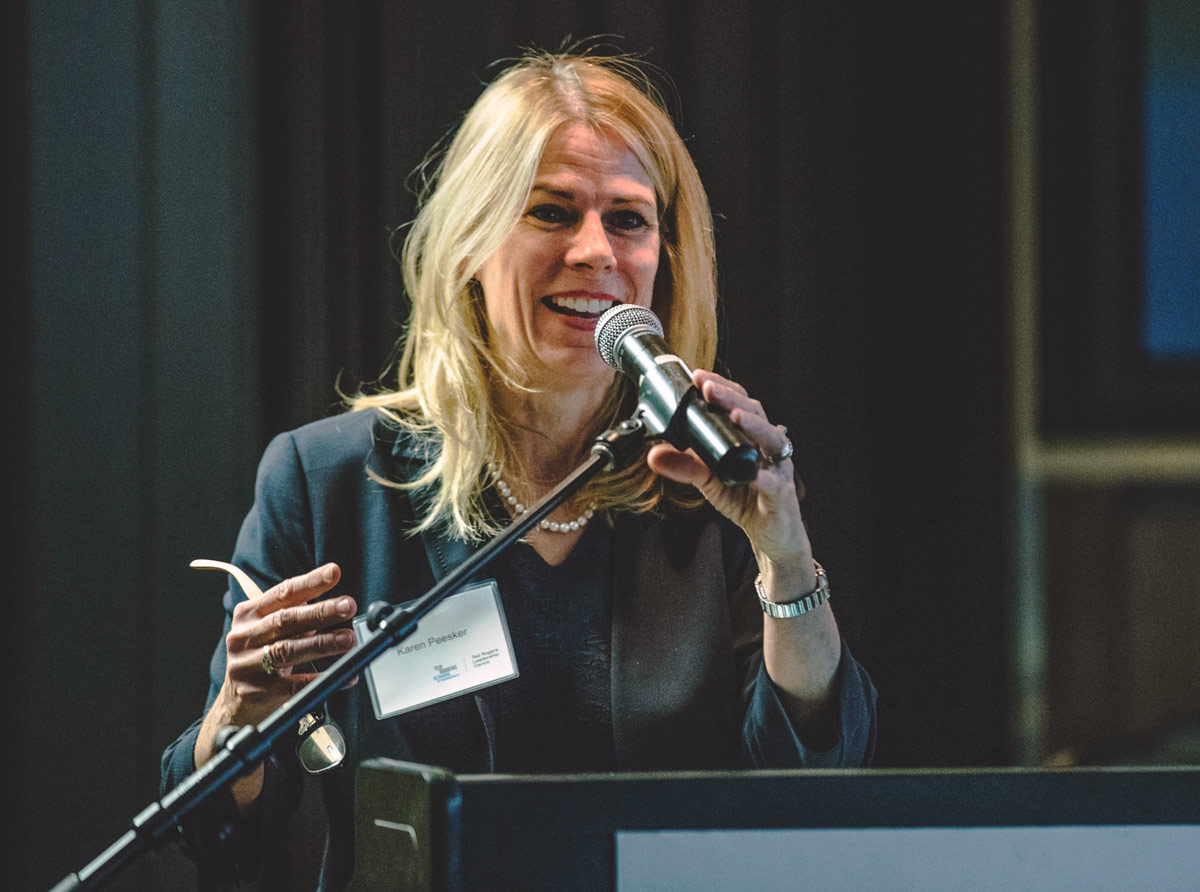
Dr. Karen Peesker speaking at a Ted Rogers Sales Leadership Program event
Retail Management alumna Emily Gampel (BComm 2020) has always found a sense of peace and satisfaction in helping others, and knew she wanted to do something for communities in need during the pandemic.
Her commitment to community stems from her grandparents. Gampel’s maternal grandfather is a Holocaust survivor who came to Canada with nothing but the clothes on his back. He was a factory worker in Winnipeg and did what he could to contribute to society. “He always taught me to help others even with what little a person may have,” she explains.
Her paternal grandfather emigrated to Canada in the early 1900s, and operated clothing stores in Niagara Falls. He, too, worked for everything he had to provide his children with a better life. “Their dedication to country and community has always inspired me,” she says.
Gampel wanted to start a project to provide new and gently used clothing and shoes for Inuit communities in Nunavut. She reached out to her friend, Daniel Taukie, whom she met at a Ted Rogers School of Management Conference. Taukie was a delegate from Arctic College and currently lives in Iqaluit.
Taukie said there has been increased homelessness in Iqaluit due to the pandemic, and donations would be in great need. He spoke of people walking without winter boots and insufficient winter clothing. Through Taukie’s recommendation, Gampel contacted the Uquutaq Society in Iqaluit, which runs the men’s shelter.
She also learned of a small hamlet called Kugaaruk, which is 1,088 km northwest of Iqaluit, that was also in need of goods because it has limited access to clothing and food.
In her Summit Heights community Facebook group, Gampel posted asking for new or gently used winter clothing, and collected over 600 pounds of items. Canadian North Airlines generously agreed to fly the goods from Ottawa to Iqaluit and Kugaaruk free of charge. The 20 boxes of goods will be split between the men’s shelter in Iqaluit and the inhabitants of Kugaaruk. Gampel contributed money from her own savings to purchase additional clothing to fill the boxes.
“This project is not done for recognition or praise, but rather to be the best person I can be,” Gampel explains. “My family, my grandparents, my parents and my sister taught me the power of ‘tikkun olam’ or repairing the world, which starts here at home, in Canada.”
My family, my grandparents, my parents and my sister taught me the power of ‘tikkun olam’ or repairing the world, which starts here at home, in Canada.
Emily Gampel
BComm 2020
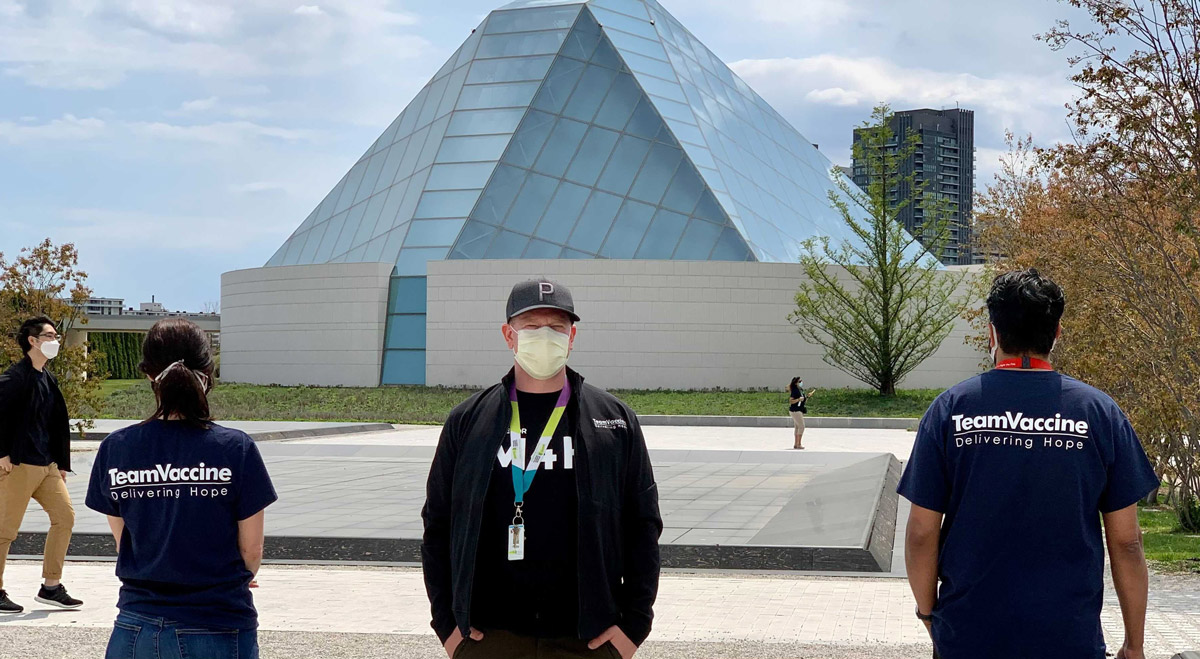
Philip Anthony (middle) in front of a mass vaccination clinic at the Aga Khan Museum
Ted Rogers School student Phillip Anthony is one of the architects behind some of Toronto’s highest-volume vaccination clinics, and credits his learnings in the Health Services Management program for helping him succeed in his role.
The part-time student is a nurse who has worked at Michael Garron Hospital since 2016. Once the COVID-19 pandemic hit in 2020, Anthony moved into the role of COVID Outbreak Lead for a year and then into a Project Manager position for Long-Term Care Homes and Community Outreach.
In May 2021, he took on his most important role yet in the fight against COVID – Manager of the East Toronto Mobile Vaccination Strategy. He is also the Co-Chair of the Toronto Sprint Strategy, a city-wide vaccination strategy across multiple Ontario Health Teams.
Anthony is one of the people behind the city’s highly successful pop-up vaccine clinics, including the Thorncliffe Park Community Hub clinic at East York Town Centre, which administered 10,470 doses in less than 24 hours – a Canadian first. He says the HSM program provided him with the foundational knowledge needed to succeed in his role.
“My role in setting up pop-up clinics varies depending on the clinic, but I oversee a lot of them,” he explains. “Our team works with community partners and elected officials to decide on locations and outreach strategies. From there, we set up all tents, permits and equipment needed. I coordinate with our Clinic Manager and team to ensure the clinic is well-staffed and running smoothly.”
“It is an incredible feeling to see these clinics be so successful,” Anthony says. “Through my outreach work, I have personally seen how devastating this virus can really be. Being able to deliver hope to individuals and communities through vaccine clinics is very rewarding to me.”
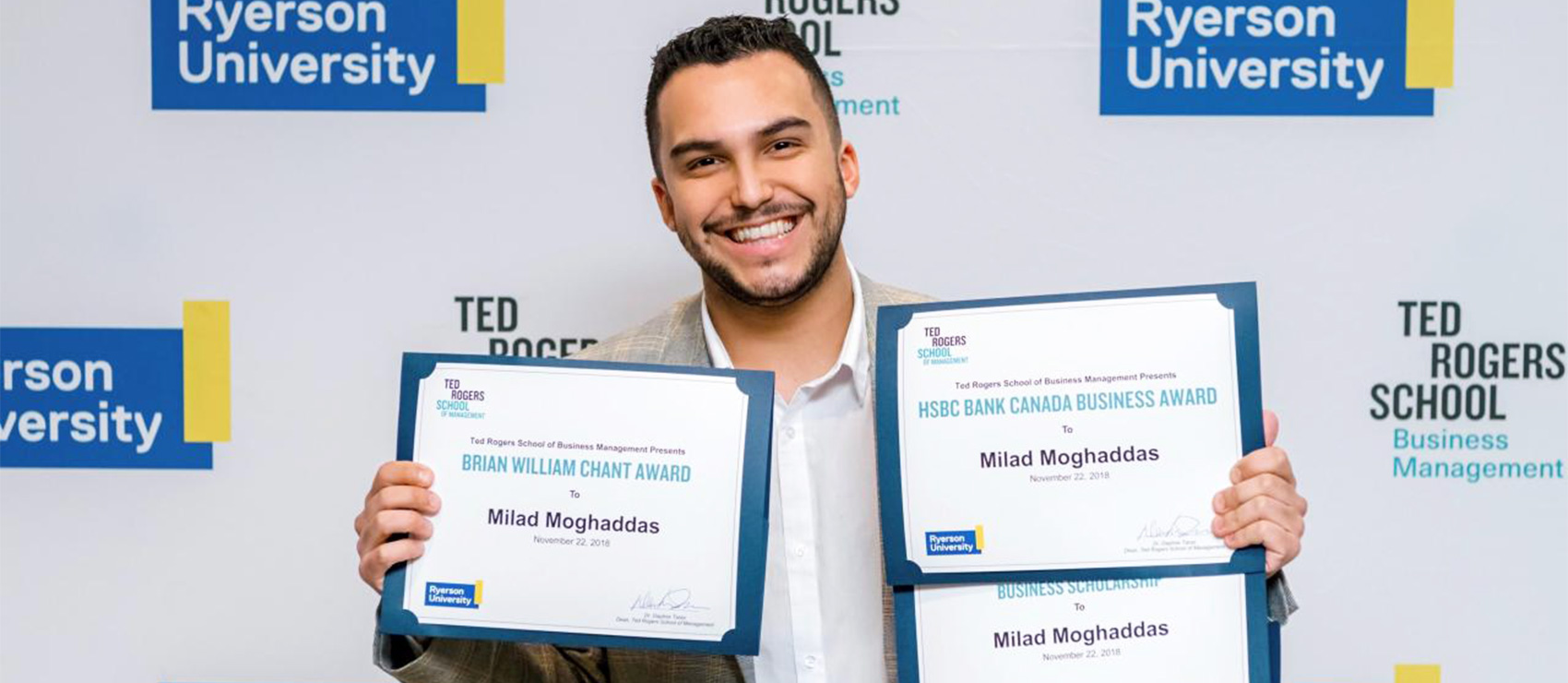
Image: Milad Moghaddas at Ted Rogers School Student Awards Reception
Entrepreneurship & Strategy student Milad Moghaddas graduated in Spring 2021 and went on to the University of Toronto to pursue his Master of Industrial Relations and Human Resources in the Fall. Since his path to graduate school wasn’t always an easy one, he wanted to help other students succeed after receiving support himself.
As a first-generation university student, when Moghaddas began his undergraduate studies in Fall 2016, he experienced significant challenges because he had more expenses and a heavier workload. Thankfully, the financial and mentorship support he received from the Ted Rogers School community allowed him to persevere and achieve success.
After adapting to the post-secondary environment, he was eager to take advantage of the varying opportunities within the university that would support his academic, professional and personal development, and allow him to contribute to and support the success of his peers.
Moghaddas fulfilled numerous student leadership roles within the Ted Rogers School, including BUS 100: Strategies for Success Facilitator, Peer Academic Coach at the Academic Success Centre and Vice-President of Marketing for the Ryerson University Co-op Students’ Association. He was also elected to the Board of Directors to represent the Ted Rogers School at the Ryerson Students’ Union and a Ted Rogers School Student Senator for the Ryerson Senate.
“Through every leadership position I fulfilled, my mission was simple: to support the academic, professional and personal development of others,” he explains. “The personal adversities I endured fueled my desire to create a significant positive impact on fellow students who have experienced similar adversities.”
“I am forever grateful for my time at the Ted Rogers School, as it taught me to embrace adversity and become resilient, and allowed me to give back to the community,” says Moghaddas.
Through every leadership position I fulfilled, my mission was simple: to support the academic, professional and personal development of others.
Milad Moghaddas
BComm 2021
The Dean’s Circle is a donor-supported, rapid response fund set up to help Ted Rogers School students. One hundred percent of donations to the Dean’s Circle – made by invited Ted Rogers School friends and business leaders – go directly to providing financial assistance for students at our school who need it most.
We are thankful for the founding members of the Dean’s Circle who are supporting the next generation of business leaders:
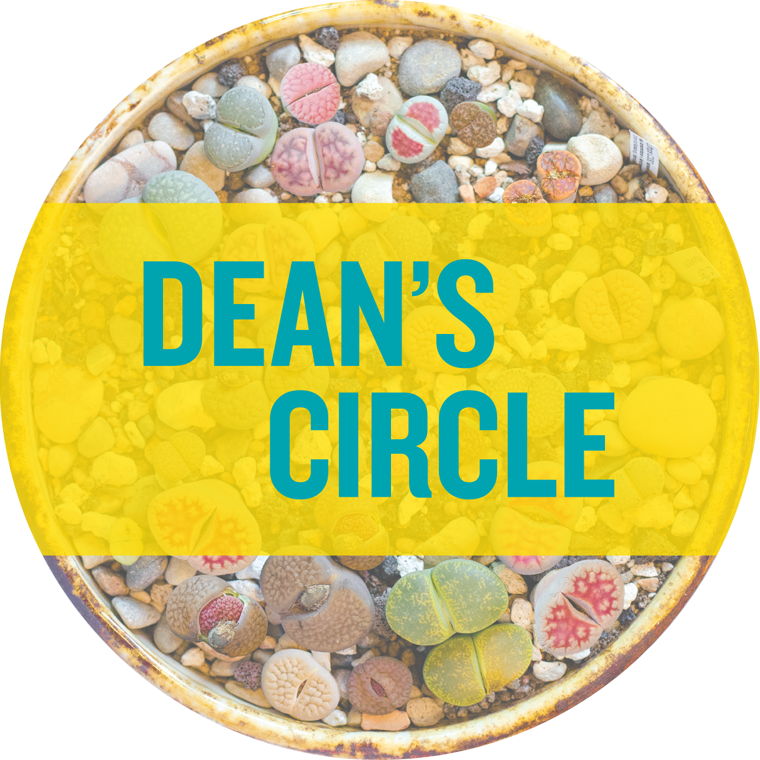
The TRSM Anti-Black Racism Awareness Committee has created an Entrance Scholarship to support Black high school students. The TRSM Anti-Black Racism Awareness Bursary provides financial support to first-year students in any Ted Rogers School undergraduate degree program who self-identify as Black. The bursary seeks to partially redress the historical inequities in access to post-secondary education in Canada experienced by Black students, and in particular those who reside in our underprivileged, high-risk communities within the Greater Toronto Area. Three bursaries in the amount of $10,000 each will be provided annually.
In addition, Master of Science in Management student Bianca Marryshow established the Sonia Marryshow Black Scholar Award. Named in honour of her mother, this award was created to celebrate Black women in higher education and support Ryerson students. “This award is not about me,” she says. “It’s about creating more options and opportunities for Black women to see themselves represented.”
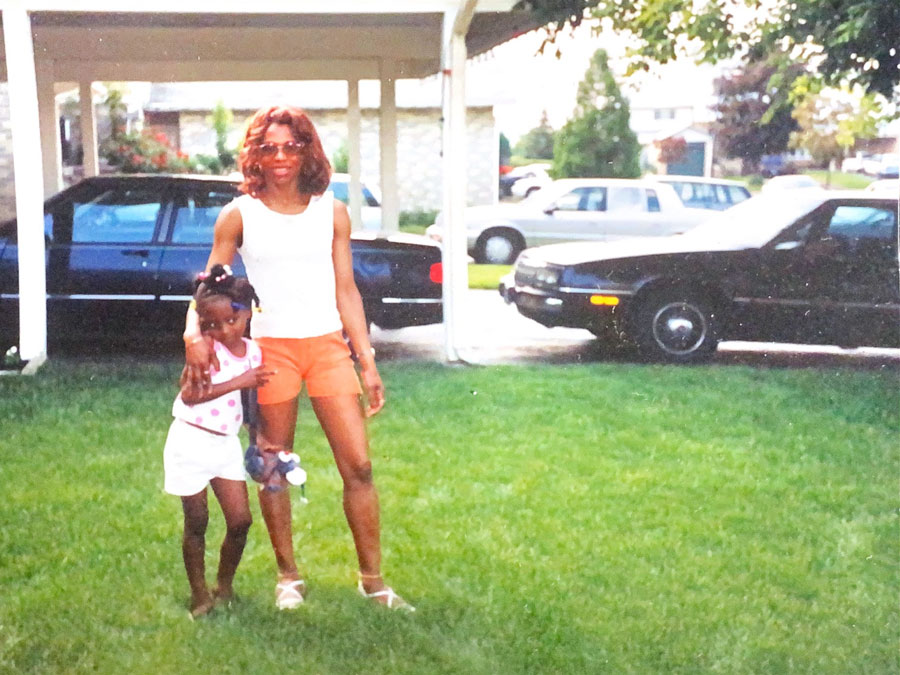
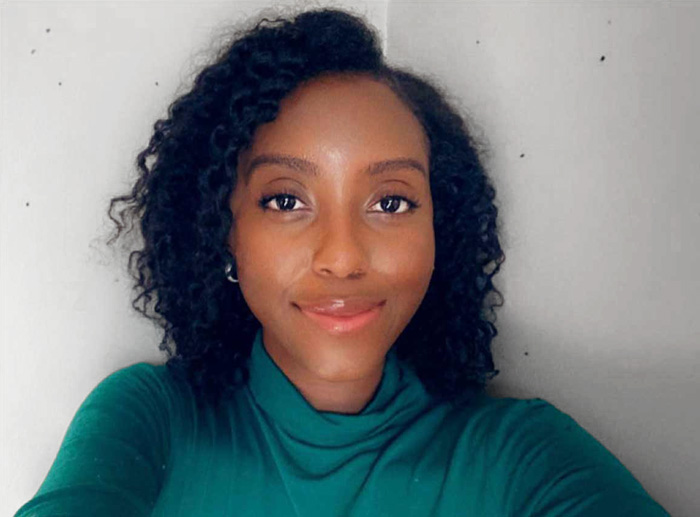
Picture on left: Bianca Marryshow as a child with her mother, Sonia
Picture on right: Bianca today
The Ted Rogers School is immensely grateful for the many donors who have helped us weather the pandemic. We are honoured to have partners in our community to help us strengthen our programs, build a larger experiential learning infrastructure and drive policy changes through research.
What drives this philanthropic support is the relationships we’ve built over the years. We partner with generous and caring donors who have continued to find new ways to support the work of our faculty and students and the mission of our school. Here are a few examples:
Our relationship with the Rogers family was solidified in 2007 with a transformational gift from Ted and Loretta Rogers making the Ted Rogers School of Management possible. In addition to substantial contributions in the form of student awards and scholarships, we have received a constant stream of support through the funding of the Ted Rogers Leadership Centre, Loretta Rogers Research Chair and the Sales Leadership program.
Over the past year, the Ted Rogers Leadership Centre has helped numerous students enhance their leadership skills and get closer to pursuing their dreams. The activities students participated in combined top academic performances with a rich variety of experiential opportunities, such as our National Ethical Leadership Case Competition.
The Ted Rogers School has had a 20-year relationship with Allan Slaight and his family. They have provided numerous opportunities to support student entrepreneurs through the Slaight New Venture Competition. In 2021, this competition awarded $25,000 each to two student entrepreneurs: one with a business that connects students with clients who need home services, and the other with an app that allows podcast creators to monetize their work.
The Slaight family is also committed to improving the lives of others through the creation of the Seniors Initiative. Under this initiative, funded by the Slaight Family Foundation, Ted Rogers School’s National Institute on Ageing (NIA) benefited from a generous $1 million gift to support their programs.
We have benefited from over a decade of giving from the Birchall family, who are integral to the progress of our highly successful Ted Rogers Co-op Program. Because of the Birchall family’s $2 million gift to support the program, our co-op students have earned more than $60 million. This past year alone, students have earned $11 million, and the program has grown to more than 2,500 students with new intake.
Hospitality and tourism executive Terry Manion’s long-standing relationship with the Ted Rogers School as a guest lecturer in the Hospitality & Tourism Management program led him and his wife Tracey to create the Terry Manion Scholarship for Incentive Travel to support the next generation of travel leaders.
*January 1 – December 31, 2021
†2020–2021 academic year
In August 2021, the university Board of Governors accepted all 22 recommendations in the Standing Strong (Mash Koh Wee Kah Pooh Win) Task Force’s final report , including renaming Ryerson University. Two members of the Ted Rogers School, Michael Mihalicz (Professor and Indigenous Advisor) and Brian Segal (Distinguished Visiting Professor and Chair, Ted Rogers Leadership Centre), were named to the advisory committee to guide the process of identifying a new name for the institution that reflects our university’s strengths, values and aspirations.
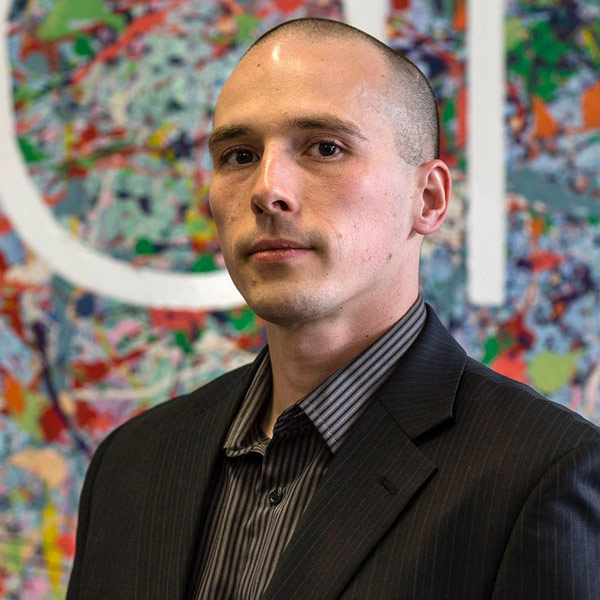
Michael Mihalicz
Assistant Professor, Entrepreneurship & Strategy // Indigenous Advisor, Office of the Dean
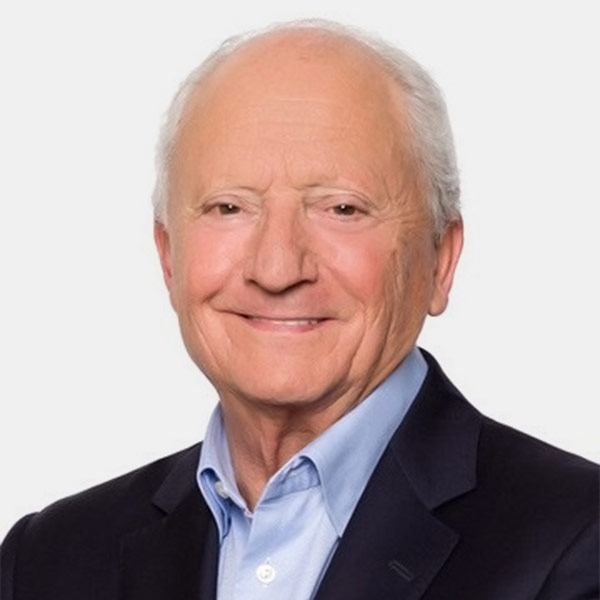
Brian Segal
Distinguished Visiting Executive // Chair, Ted Rogers Leadership Centre
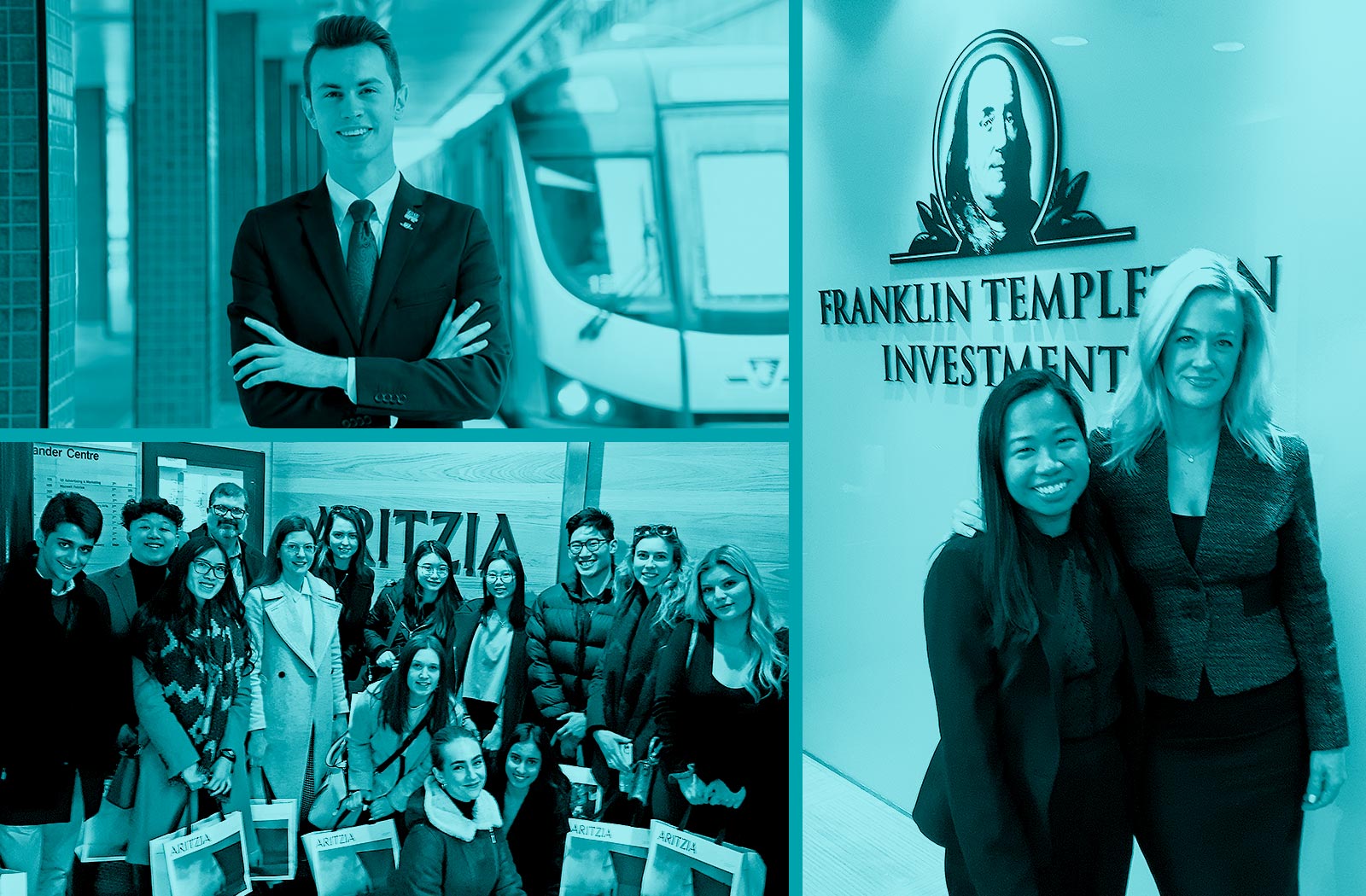
Learning at the Ted Rogers School is not restricted to lectures and textbooks. Students also have unique opportunities to complement the skills they’ve acquired through traditional means with hands-on projects, national and international case competitions and co-op placements at leading employers. In addition, they have the chance to hear from a range of business leaders and even be mentored by industry executives.

Ted Rogers School students partnered with online retail leader Shopify to get hands-on experience building their own businesses from the ground up.
Shopify, an all-in-one e-commerce platform, has an Open Learning Program which provides authentic experiential learning opportunities for students by giving them access to fully-functional Shopify stores for free. When Dr. Frances Gunn (Associate Professor, Retail Management) and Dr. Deborah Fels (Professor, Information Technology Management) discovered they were both teaching classes where students had access to Shopify accounts, they joined forces to create an interdisciplinary project.
Since Dr. Gunn had a group project in her Leading in Retail Organizations (RMG 925) course and Dr. Fels had one in her Advanced eBusiness (ITM 550) course, they gave students the option to work with students from the other class to develop a Shopify business.
“With this project, students are able to bring their diverse interests, abilities and educational and work experiences to bear on a common goal,” says Dr. Fels. “Also, the two courses are teaching different aspects of the e-commerce retail world, so students from both courses have the benefit of learning and applying those different topics from each other.”
This unique learning experience was appealing to ITM student Shafiul Mazniabin. “I chose to do this project with Retail students because of the different perspectives they bring to the table with their retail knowledge, understanding of the customer’s requirements and other creative aspects,” he says.
As far as Dr. Gunn and Dr. Fels are aware, this is the first time there has been an interdisciplinary project at the Ted Rogers School that is embedded in two different courses and is credit-worthy.
“Students need to be able to come out ready to pivot and to work in an interdisciplinary way, and what we need to provide to them is this capacity in a way that’s embedded in what they’ve learned,” says Dr. Gunn.
Eight teams of four students each (two Retail and two ITM) participated in this project. Some of the businesses created involve international snack foods, thrift shopping, watches, high-end computer parts and lip care products.
“In projects like this, we learn with others and through engagement over a period of time using hard and soft skills,” says Retail Management student Belinda Chen. “We also brush up on our leadership skills and learn to put on different ‘thinking hats’ to collaborate and problem-solve.”

Shopify store created by Retail students Sebrina Bender and Adriana Grancaric and ITM students Maram Taian and Ksenia Tchekalin
Students need to be able to come out ready to pivot and to work in an interdisciplinary way, and what we need to provide to them is this capacity in a way that’s embedded in what they’ve learned.
Dr. Frances Gunn
Associate Professor, Retail Management
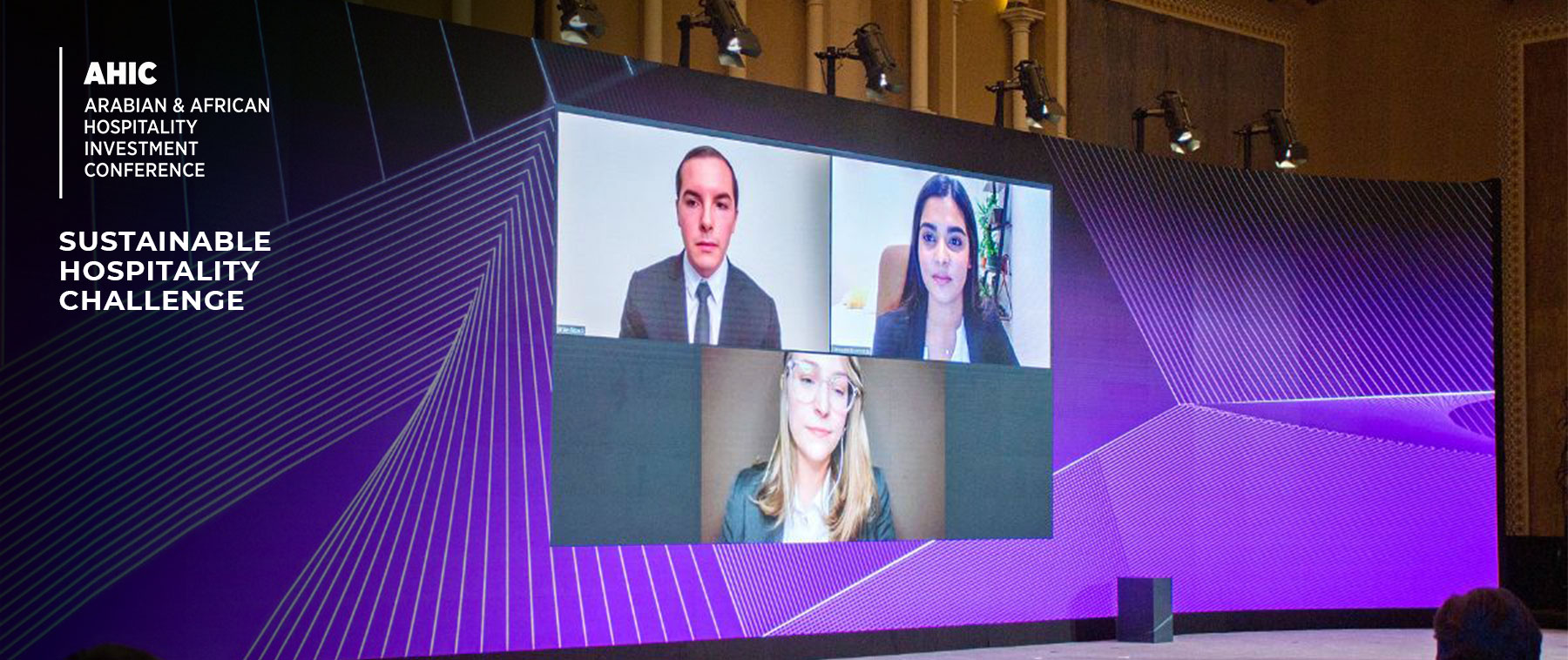
Above image: (Clockwise from top) Brian Riback, Raina Patel and Michelle Novotny
Case competitions allow students to experience “real world” business challenges in competitive environments while presenting to industry leaders. Hospitality and Tourism Management students Raina Patel and Brian Riback and HTM alumna and MScM student Michelle Novotny, created and pitched their innovative idea to address the problem of overtourism in the Sustainable Hospitality Challenge. Their solution landed them a spot in the Finals for the competition in Dubai. The team came in second place at the event, even though it was the only one to compete virtually.
In addition, members of the Ted Rogers Undergraduate Sales Team (TRUST) gained hands-on experience participating in role-play and speed-selling challenges in several North American competitions.

Jackson Scarfe and Camilla Racco at the National Collegiate Sales Competition
The Law & Business Clinic at the Ted Rogers School provides free legal services in a variety of business law matters to entrepreneurs and small businesses that cannot afford to retain a lawyer. It also offers third- and fourth-year students majoring in Law and Business the opportunity to develop essential skills and gain valuable, practical experience and exposure to the legal profession under the supervision of lawyers, professors and Academic Director Dr. Pnina Alon-Shenker.

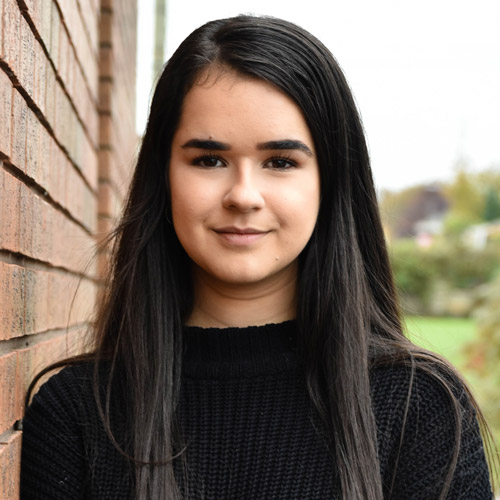
Michelle Chalatov
Law and Business student
The Law & Business Clinic is a one-of-kind initiative. When I was in high school deciding which university to attend, this Clinic was one of the deciding factors that brought me to the Ted Rogers School.
Much of my work at the Clinic focused on assisting my client – a young, passionate entrepreneur – with their business-related legal matters. I had the opportunity to draft such documents as a commercial services agreement geared towards SaaS (Software as a Service) products, a non-disclosure agreement and an independent contractor agreement.
I also gained experience in relationship-building with clients. I was responsible for meeting with my client on a regular basis along with my supervising lawyers and clinical team members, providing them with progress updates and answering questions. I was regularly communicating with our supervising lawyers over email and conference calls as well, which meant I quickly learned how to communicate effectively and professionally.

Ashveer Sohi
Law and Business student
During my final two terms as a Law and Business major, I had the opportunity to work at the Law & Business Clinic. Under the supervision of three lawyers at Miller Thomson LLP, I completed various deliverables, including preparing and reviewing legal documents and memorandums for a small business entrepreneur.
I applied theoretical knowledge acquired in class to real-life clients, gaining practical experience with a unique insight into the legal profession. Apart from completing legal deliverables, my responsibilities included coordinating the client process. My team members and I organized the entire client relationship from signing the retainer agreement to sending closing letters.
Working collaboratively with my supervising lawyers allowed me to learn a tremendous amount of legal knowledge and practice my professional communication skills. The Clinic also taught me the importance of pro bono legal clinics and their role in tackling access to justice issues in our communities.
Eight students at Ryerson’s Lincoln Alexander School of Law are graduates of Ted Rogers School’s Law and Business program (seven majors, one minor), and two students come from our other BComm programs.


When it comes to kickstarting a career, mentoring matters. And to help Retail students build connections and receive first-hand guidance from industry leaders, the Ted Rogers School of Retail Management tapped into their Advisory Council for a network of mentors.
The Mentoring pilot program launched in 2020, with 12 students receiving one-on-one mentorship from a member of the Retail Management Advisory Council – executives at some of the most successful retailers. This included coaching, guidance and opportunities to learn about retail careers, trends and current issues in the sector, as well as how to be a leader. It was not intended to be a career recruiting relationship.
Fourth-year Retail Management student and Executive Vice-President of the Retail Students’ Association (RSA), Adriana Martinez was mentored by Carolyn Hynds, Vice President of Loyalty, CRM and Analytics at Rexall Pharmacy Group during the 2020-21 academic year.
The pair met for an hour each semester, and Martinez was able to ask Hynds questions about her career journey, what working in retail during a pandemic has been like and how to navigate being a leader in the virtual working world. She applied her mentor’s advice to managing her RSA team virtually and found it highly effective. Hynds was also available for additional contact points throughout the year, such as answering questions over email.
While Martinez says she enjoys attending panel discussions and listening to industry leaders, she felt that talking to Hynds on a more personal level was an invaluable experience. “We were able to maintain engaging conversations and speak candidly with each other,” she explains.
“There is no greater honour than playing a role in shaping the next generation of retail professionals,” says Hynds. “I can credit mentors with helping me see a possible future and build the confidence needed to achieve it.”
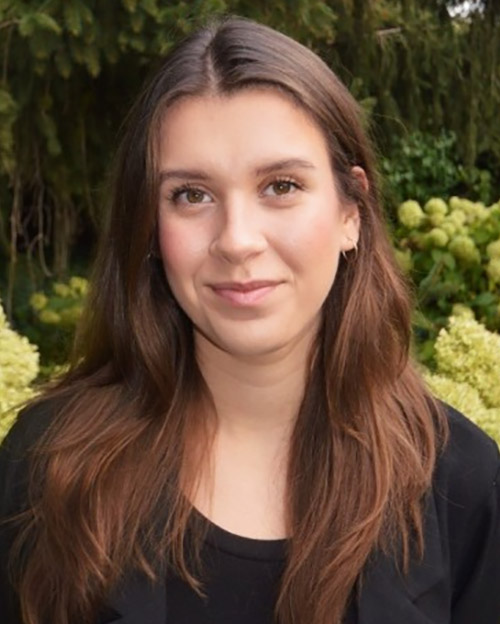
Adriana Martinez
Fourth-year Retail Management Student
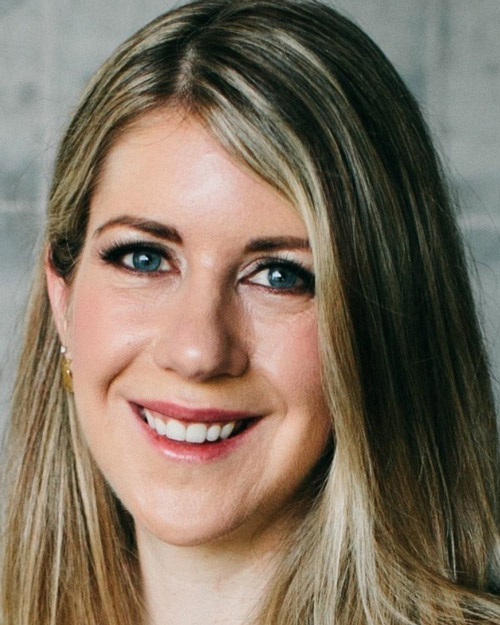
Carolyn Hynds
Vice President of Loyalty, CRM and Analytics
Rexall Pharmacy Group
There is no greater honour than playing a role in shaping the next generation of retail professionals.
Carolyn Hynds
Vice President of Loyalty, CRM and Analytics
Rexall Pharmacy Group
The Ted Rogers School leverages its strong industry connections to feature notable guest speakers in its classes and events. Students in Dr. Cheri Bradish’s Sport Marketing (MKT 829) course heard from Maple Leaf Sports & Entertainment (MLSE) executives during a virtual Sport Marketing During the Pandemic panel discussion. In another virtual panel, MBA and undergraduate sport business students heard from several of the women involved in the first all-female NBA broadcast: Nathalie Cook (Vice President, TSN/RDS), Rebecca Ross (Senior Director; Content, Broadcast, and Distribution, MLSE), Meghan McPeak (Broadcaster, Monumental Sports), Savanna Hamilton (Host & Producer, MLSE) and Amy Audibert (Colour Commentator, Raptors 905).
A stacked panel of female leaders in the industry ahead of our historic all-female broadcast tomorrow night. #IWD2021 pic.twitter.com/mE0JogHOoU
— Toronto Raptors (@Raptors) March 23, 2021
While the COVID-19 pandemic may have forced offices to physically close, students in the Ted Rogers Co-op program were still able to gain valuable experience with remote work placements. Here is what a few students said about them:
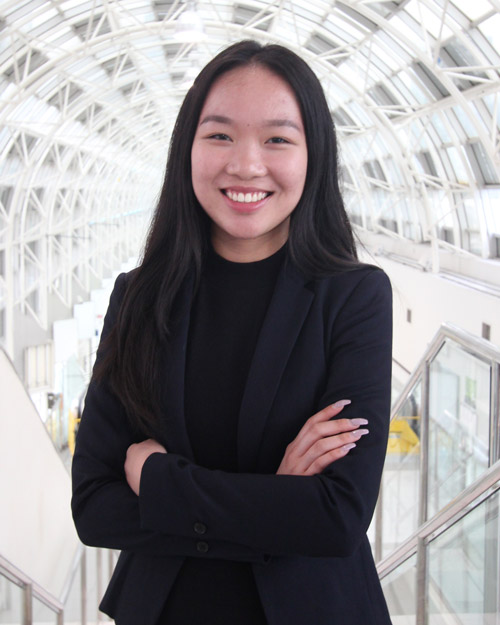

Katherine Tran
Global Management Studies major
After losing my first co-op placement for summer 2020 due to COVID-19, I was lucky to land the role of a SME Business Consultant for the Ryerson Entrepreneur Institute (REI). The REI optimized limited funding to hire six co-op students to form a student consulting group, called the Business Innovation Hub, to help small-medium businesses that were struggling during the pandemic.
My role encompassed the responsibilities of a Project Manager and a Sales Lead. My daily tasks varied – one day I would have sales calls with prospective clients, and another day I would be conducting market research using Google Analytics.
This co-op placement taught me numerous skills, primarily technical ones. I learned how to use multiple applications from Adobe’s Creative Cloud to refine branding and marketing strategies, developed successful digital marketing strategies using social media and analyzed sales strategies to increase outreach.
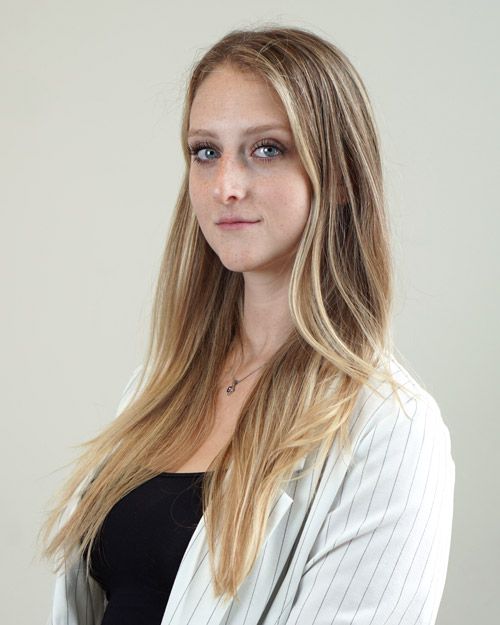

Miranda Silver
Economics and Management Science major/Finance minor
My first co-op experience was working as an IT Business Analyst at Johnson & Johnson’s Consumer sector from January to September 2020. My role had a very heavy project management/leadership aspect focused on using IT processes and resources to drive business outcomes for our Sales and Customer Development teams.
Two months into my work term, my entire department began working from home due to COVID-19. Despite the challenging situation, I was determined to make the most of my experience and positively contribute to the company.
I took the initiative to independently lead new upcoming projects, specifically within expanding e-commerce visibility and creating a new Sales & Forecasting dashboard. As I gained more confidence in my role, I began creating my own process improvement initiatives and also became more involved in morale-boosting activities within the company.
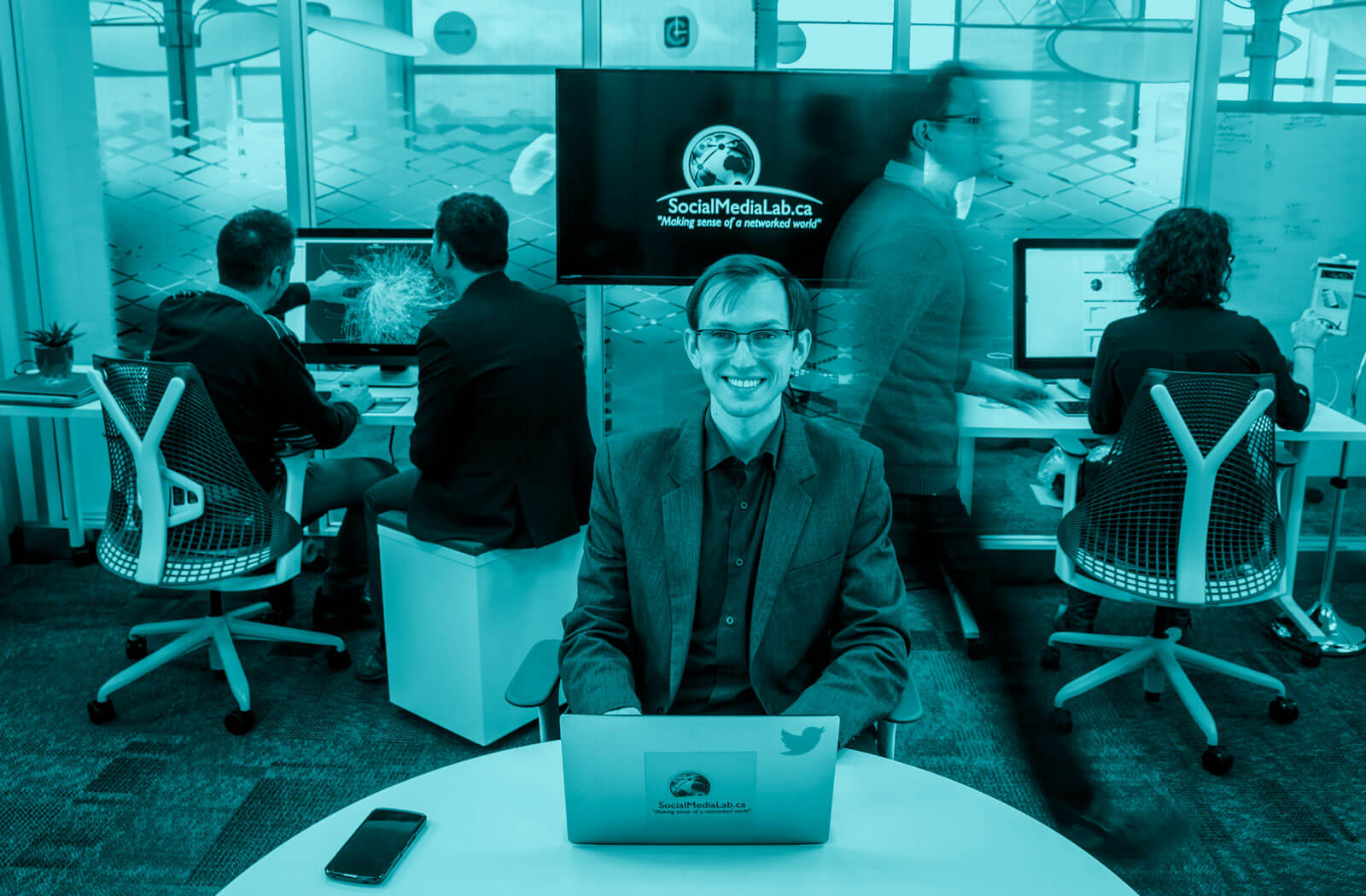
The Ted Rogers School continues to be at the forefront of research that is driving innovation and advancing knowledge in areas ranging from cybersecurity and social media to diversity and inclusion that will make a difference both within our community and beyond. We have also partnered with external organizations to expand our research initiatives and have greater impact.
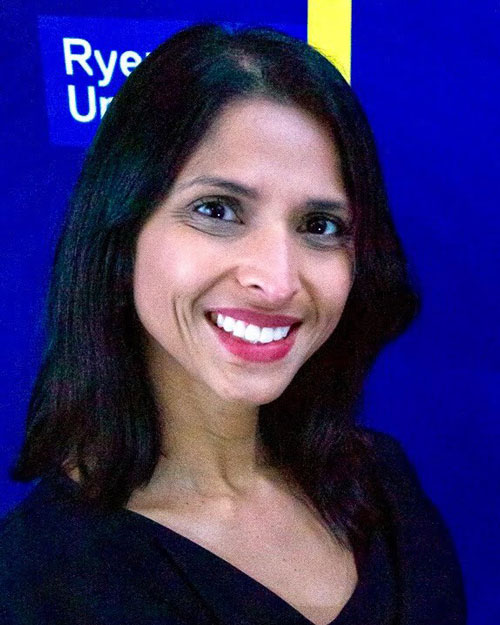
Dr. Rupa Banerjee
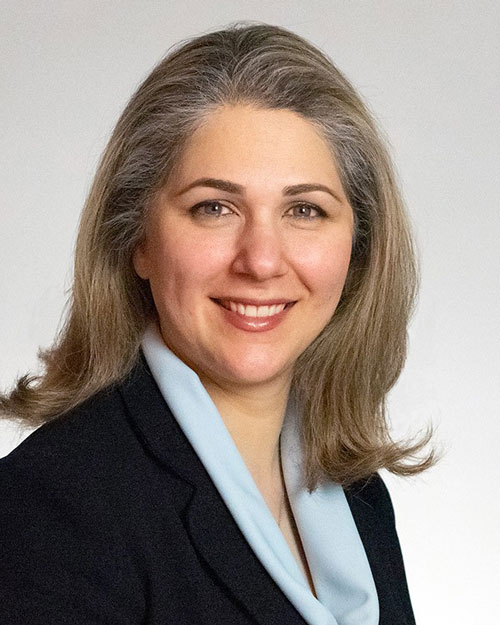
Dr. Atefeh (Atty) Mashatan
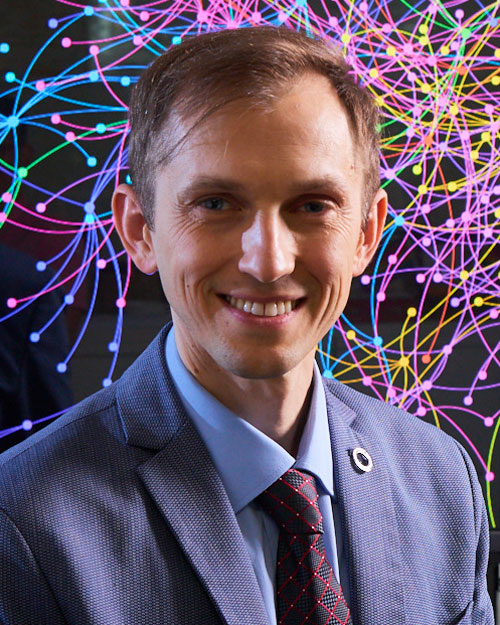
Dr. Anatoliy Gruzd
The research excellence of the Ted Rogers School has been recognized with the appointment of three prestigious Canada Research Chairs (CRC).
Dr. Rupa Banerjee (Associate Professor, HR Management and Organizational Behaviour), is the new CRC in Economic Inclusion, Employment and Entrepreneurship of Canada’s Immigrants, and Dr. Atefeh (Atty) Mashatan (Associate Professor, Information Technology Management) is the new CRC in Quality of Security Framework for Internet-of-Things. Dr. Anatoliy Gruzd (Professor, Information Technology Management) had his CRC in Privacy-Preserving Digital Technologies renewed for another term.
The Canada Research Chair program was created to attract and retain a diverse cadre of world-class researchers, to reinforce academic research and training excellence in Canadian post-secondary institutions and help train the next generation of highly skilled people through student supervision, teaching and the coordination of other researchers’ work.
“We are very proud of Drs. Banerjee and Mashatan who, along with Dr. Gruzd, are excellent representatives of the Ted Rogers School brand where we strive to engage in socially relevant research,” says Dr. Ozgur Turetken, Associate Dean, Research.


When it comes to equity and diversity in sport, Dr. Richard Norman wants to change the game.
The Ted Rogers School appointed Dr. Norman as a Postdoctoral Fellow in November 2020 to conduct research that focuses broadly on equity, diversity and inclusion in the Canadian sport industry.
Dr. Norman is working directly with Dr. Cheri L. Bradish, Director of Sport Initiatives and the Future of Sport Lab, a lab for sport innovation and research supported by Maple Leaf Sports & Entertainment (MLSE). His work is particularly focused on the lived experiences of those who identify as racialized persons – Black, Indigenous, Persons of Colour (BIPOC) – and those who have been marginalized in sport.
As he pursues his trailblazing postdoctoral project, with a particular focus on the related leadership of the Canadian sport business industry, Dr. Norman will be supported and informed by an industry advisory board representing some of Canada’s leading sport organizations, partners and media properties. This includes support and collaboration with MLSE Launchpad – MLSE’s community-based organization where youth facing barriers can use sport to recognize and reach their potential.
“Dr. Norman is an emerging scholar who has led critical investigation and insights that have opened discussion toward a more inclusive sport industry,” says Dr. Bradish. “As our industry deals with challenges and change, in particular as highlighted during the past year, his unique and innovative research work will help support positive change for the Canadian sport industry.”
One of the initiatives Dr. Norman has led since starting at the Ted Rogers School is the Sport, Diversity & Race Project. The project includes a new insights panel series on equity, race and inclusion which was launched by the Ted Rogers School, in partnership with the MLSE Foundation, MLSE LaunchPad and Ryerson’s Office of the Vice-President, Equity and Community Inclusion (OVPECI).
The monthly series, curated by Dr. Norman, features a range of sport practitioners, including athletes, scholars, industry experts and thought leaders reflecting on a variety of topics concerning the sport industry and system: what the industry sector has done well, what needs to happen moving forward and what are the long-term implications for the shifting sport landscape.
The first edition of this panel series debuted on May 26, 2021, just after the first anniversary of George Floyd’s death. It featured a group of Canadian sport and community leaders who are championing inclusion at all levels.
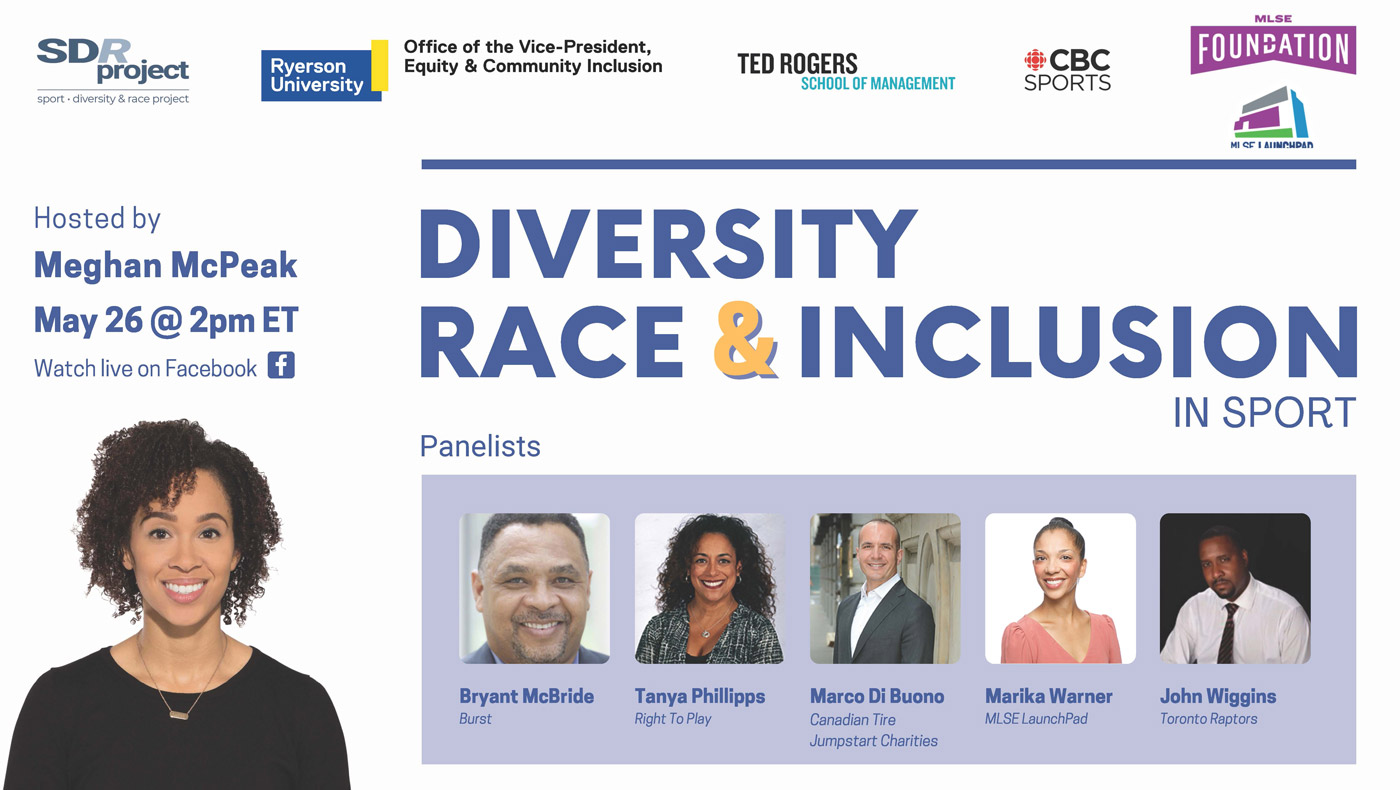
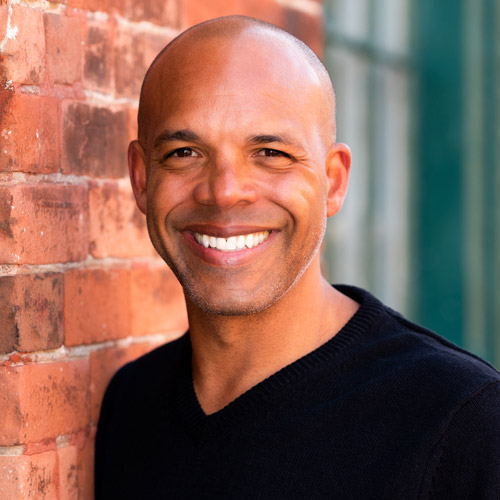
Dr. Richard Norman
Postdoctoral Fellow
In Fall 2020, the Ted Rogers School welcomed the first class of students to its new PhD in Management, a program dedicated to graduate students who are looking to investigate topics and issues with real world impact. One of those students is Trudeau Scholar Charlie Wall-Andrews.
In addition to having over a decade of management experience in the creative industries, Wall-Andrews has established innovative programs such as the Creative Entrepreneur Incubator and Equity-X-Production Mentorship Program, which prepares artists to turn their passion and talent into sustainable careers.
“I was motivated to pursue my PhD at the Ted Rogers School as I aspired to study with Dr. Wendy Cukier, a global leading scholar who has empowered and supported me to achieve high-quality research,” she says. Wall-Andrews is conducting her research under the supervision of Dr. Cukier at the Ted Rogers School’s Diversity Institute, which was founded by Dr. Cukier.
“My PhD in Management specializes in Strategy, Innovation and Entrepreneurship, where I focus on these fields and how they influence the creative and cultural industries,” she explains. “I’m interested in this area of research because the creative and cultural industries have proven to be highly innovative and entrepreneurial, and I want to conceptualize further empirically.”
After graduating, she plans to continue conducting research that has an impact in terms of cultural policy, and emancipates artists as entrepreneurs.
Wall-Andrews was recognized for her achievements in the first year of the PhD program by receiving a 2020-21 Jennifer Mactavish Graduate Student Leadership Award from Ryerson’s Yeates School of Graduate Studies for SRC (scholarly, research and creative) Innovation and Impact.

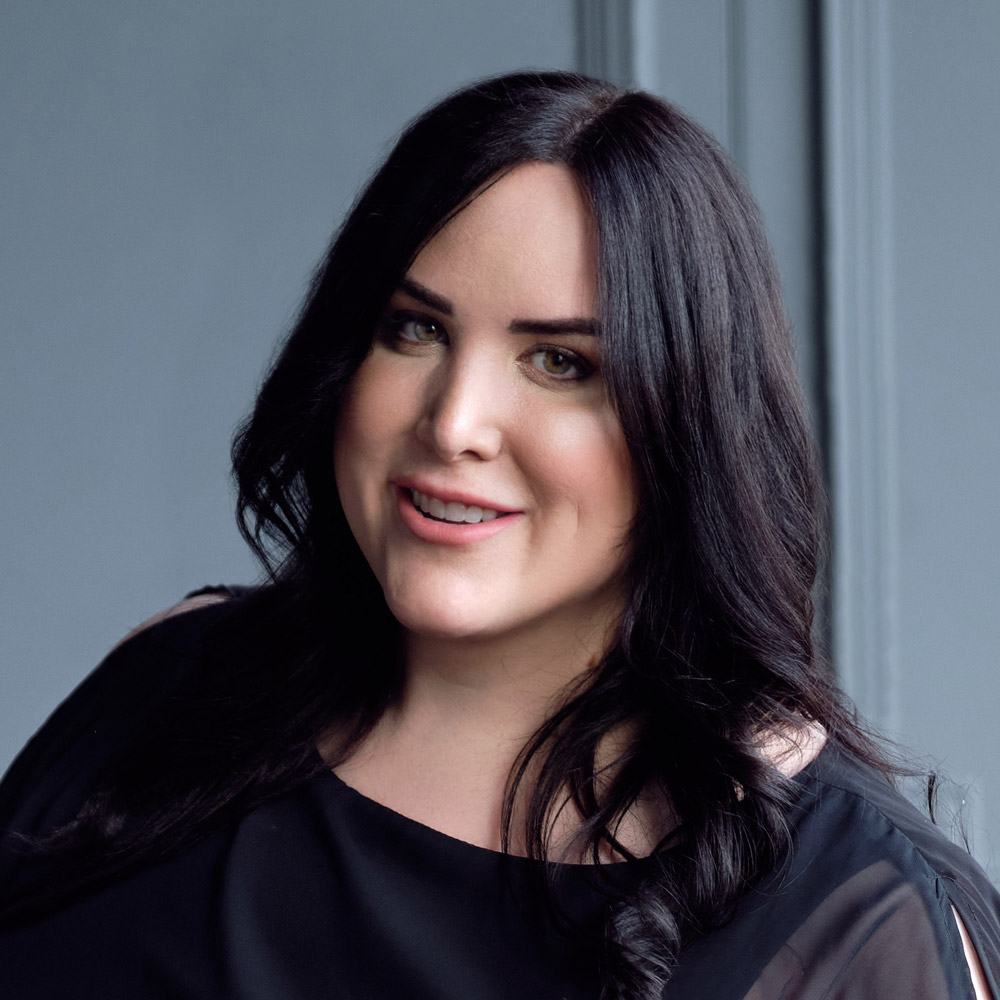
Charlie Wall-Andrews was named a Women’s Executive Network (WXN) 2021 Canada’s Most Powerful Women: Top 100 Award Winner. She was selected in the award’s MLSE Arts, Sports & Entertainment category, which recognizes women who have shaped our thinking and culture through a profound impact made in these significant areas.
2021 QS World University Rankings by Subject, which ranks the research impact of universities, placed Business Management Studies at Ryerson in the top 100 globally and #4 in Canada for citations per paper. Business Management Studies was also ranked #5 in Canada and #113 globally for H-Index Citations. This index measures the productivity and impact of the published work of a researcher. It is based on the set of the academic’s most cited papers and the number of citations they have received in other publications.

In the 2021 ShanghaiRanking’s Global Ranking of Academic Subjects, Hospitality and Tourism Management (HTM) at Ryerson ranked #83 worldwide. This is up from #92 in 2020, Top 200 in 2019 and unranked in 2018. HTM retains its second place in Canada for its overall rank and citation performance of the journal articles.

As Canadians emerge from the pandemic and reconvene with friends and family for meals, a new study is shedding light on what was once believed to be a healthier way of eating. Researchers at the Ted Rogers School and York University have published a study that shows food sharing may be encouraging excessive caloric intake.
The study, published in the Journal of Consumer Psychology, looks at why people underestimate the fattening potential of shared food and how companies should factor this into their marketing plans when advertising products that are “perfect for sharing.”
“When people eat from their own plates, they feel that they own the food on that plate. They accept the consequences of the calories they ingest and the possibility that these calories may lead to weight gain,” said Dr. Nükhet Taylor, Assistant Professor of Marketing Management at the Ted Rogers School and co-author of the study. “In contrast, shared consumption means eating from a communal resource. This can erode individual ownership and lead people to underestimate the consequences of caloric intake.”
The research team conducted five studies with different populations and different food items. They showed participants some of the most popularly shared food items, such as french fries, M&Ms and McNuggets. They found that participants perceived food as appearing less fattening when shared and that a lack of ownership over the shared food contributed to this.
These findings represent a cautionary note for companies that strive to engage in responsible marketing, as well as for public policy makers.

Three Ted Rogers School researchers secured prestigious grants from the Social Sciences and Humanities Research Council of Canada (SSHRC) in 2021.
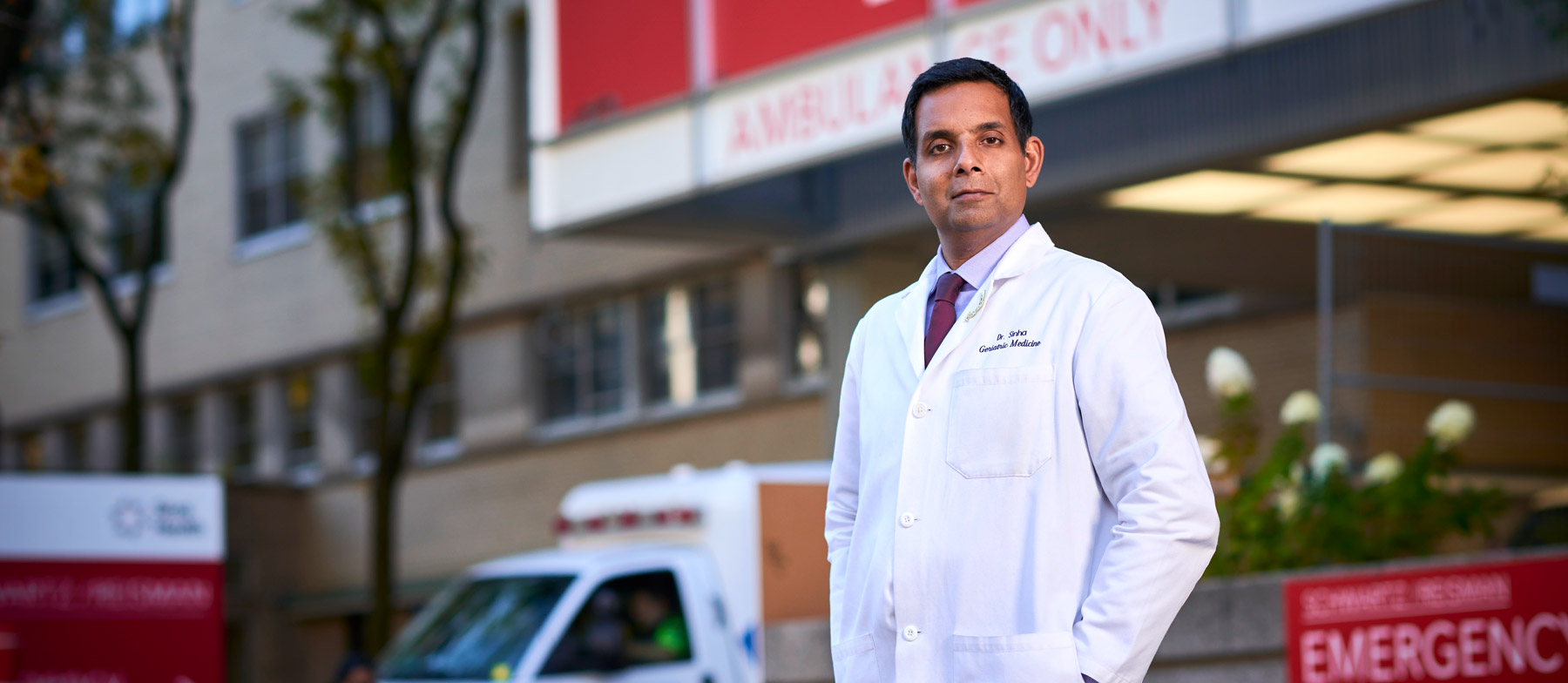
In April 2021, Dr. Samir Sinha, Director of Health Policy Research and Co-Chair of the National Institute on Ageing, was appointed to the National Seniors Council. Throughout the COVID-19 pandemic, Dr. Sinha has been a leading national advocate on behalf of older Canadians, especially those in long-term care, providing vital research and tools to help protect the nation’s most vulnerable population. As a member of the National Seniors Council, he will advise the Government of Canada and help to drive the national agenda on the health, well-being and quality of life of older adults.

Media outlets have turned to Ted Rogers School faculty members for their expert insights and opinions. From July 2020 to July 2021, we had 5,490 media mentions across online, radio and TV news outlets, both nationally and internationally.
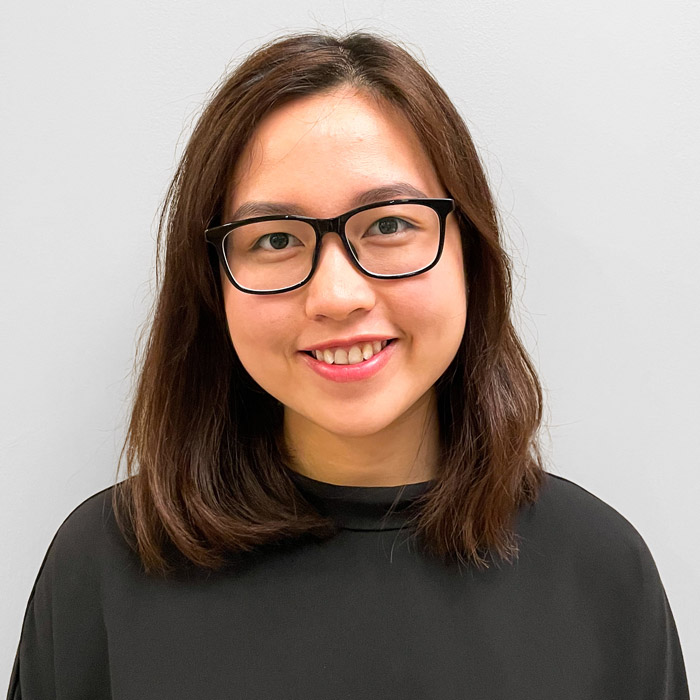
Xuan Quach
Master of Science in Management Student
International Master of Science in Management student Xuan Quach had her primary-authored manuscript, “Profiling Gifters via a Psychographic Segmentation Analysis: Insights to Retailers,” accepted at the A-ranked International Journal of Retail & Distribution Management. Her thesis-based conference submission, “Trait-based Segmentation for Mobile Personalization and Privacy Concerns” also won the overall Best Conference Paper at the 2021 Triennial American Marketing Association/American Collegiate Retailing Association Conference.
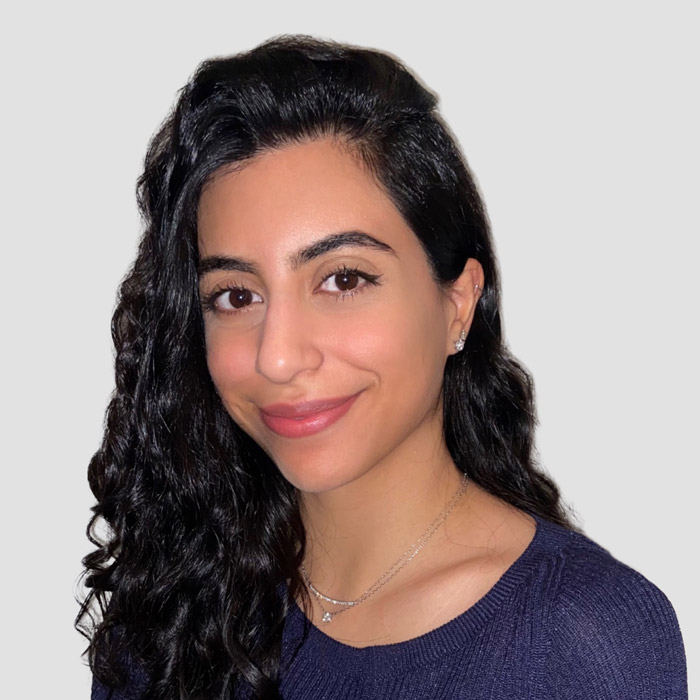
Lara Hamdan
BComm, 2020
Recent Marketing Management graduate Lara Hamdan (BComm, 2020) had her paper, “Brand Balance: The Effect of Influencer Brand Encroachment on Interactivity,” accepted by the A-ranked International Journal of Retail & Distribution Management. “Undergraduate students may get an opportunity to publish at an A-level journal as a second or third author, but it is rare for them to lead and execute their own project and to see it come to fruition at a reputable journal,” says Dr. Mark Lee, Director of the Retail Management program.
The number of research articles published by Ted Rogers School faculty in top-ranked journals has been rising steadily in recent years. Here is the total number and percentage of all peer-reviewed journal articles published by our faculty that were in A*, A and other highly ranked journals.
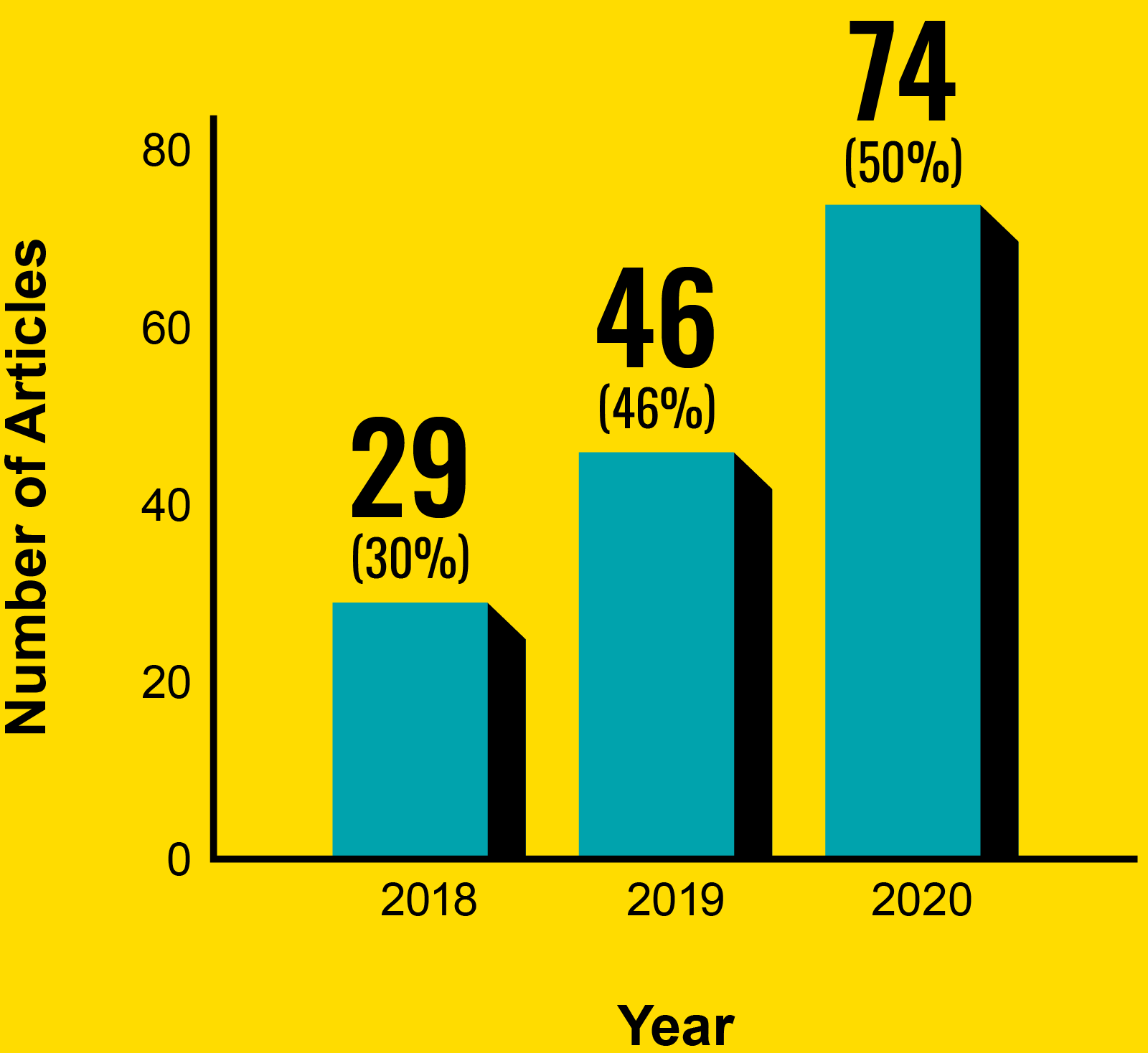
The Ted Rogers School’s Cybersecurity Research Lab (CRL) is tapping the resources and expertise of Ripple, a leading Silicon Valley-based provider of enterprise blockchain solutions for payments, as part of the company’s University Blockchain Research Initiative. The CRL conducts cutting-edge information security research, and blockchain technology is one of its areas of expertise. As part of the partnership, the CRL will establish a Ripple Blockchain Collaboratory designed to advance this innovation.
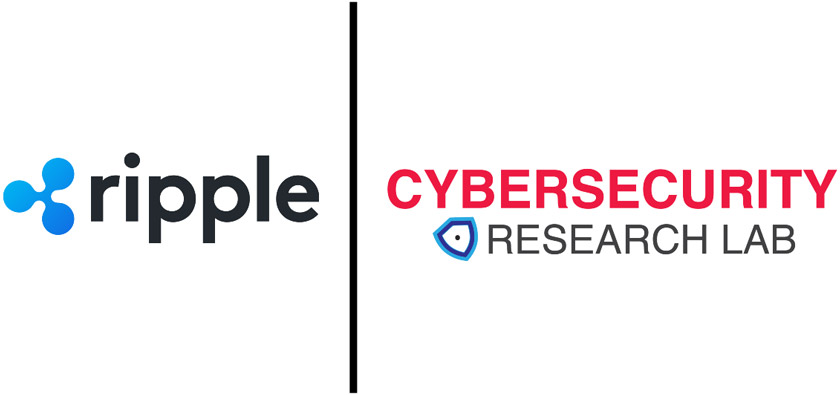
The Ted Rogers School has launched a research study on Canadian Sport Fans, in partnership with Sportsnet and in collaboration with the Future of Sport Lab (FSL). The Canadian Sport Fan Index will provide key insights on the attitudes, behaviours and trends of sport fans across Canada. The research will focus on the post-COVID era, examining how fans are engaging with professional sports teams and leagues as they deal with limited access to live events, altered schedules and other changes.

Music Canada, in collaboration with the Ted Rogers School’s Diversity Institute, is releasing a survey as part of a new and first-of-its kind research study on equity, diversity and inclusion in Canada’s music industry. This survey and the broader research study intends to identify diversity and inclusion gaps within the music industry and gain a deeper understanding of the challenges and barriers to success faced by diverse artists, creators and music professionals in the Canadian sector.
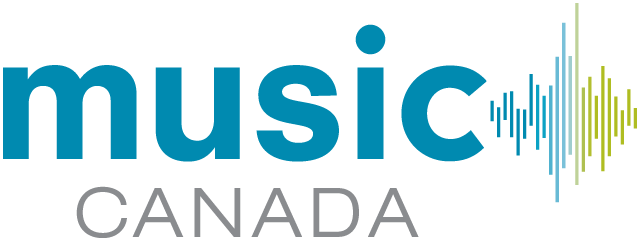

Erik Robeznieks’ passion for physical activity and sport has motivated him to investigate how collegiate sports can provide opportunities for students with physical disabilities.
The Ted Rogers MBA student presented his research project, called “Examining the Potential Inclusion of Adaptive Sport in the NCAA,” on how adaptive sport can be included at the U.S. collegiate level, as part of a keynote address at the Academy of Spinal Cord Injury Professionals 2020 Virtual Conference. The NCAA is the National Collegiate Athletic Association, which oversees athletics at almost 1,300 educational institutions in the U.S. and Canada.
“This area of work is a great passion of mine because of the value that physical activity, recreation and sport can have for individuals and society,” says Robeznieks.
“On an individual level, these opportunities lead to emotional, social and physical wellness. They also foster self-efficacy and transferable skills that support personal, academic and professional success,” he explains. “At a societal level, adaptive sport is a way to bring people together that actively dismantles misconceptions about disability and adaptive sport.”
The main motivator for Robeznieks’ research is the lack of support by the NCAA and its member institutions in creating equitable opportunities for athletes with physical disabilities to compete at the collegiate level. His study explored the current challenges for, and strengths of, adaptive sport at the collegiate level, opportunities for the growth of collegiate adaptive sport programming and participation and strategies for integrating with the NCAA.
“Adaptive sport is not something that has to be, nor should it be, delivered in a segregated way,” he says. “Through slight modifications of delivery, adaptive sport can be inclusive of everyone.”
As a result of Robeznieks’ research paper and prior work, he has been employed by the University of Michigan to manage their adaptive sports and fitness program and implement the recommendations from his research project.
“A goal of the program is to have adaptive sport recognized as a varsity sport at the institution, and be the first NCAA Division 1 school in the United States to officially support an adaptive sport as a varsity sport,” he says. “In the future, I plan on using what I learn from my professional and academic experiences to build an adaptive sport and fitness program at a Canadian university.”
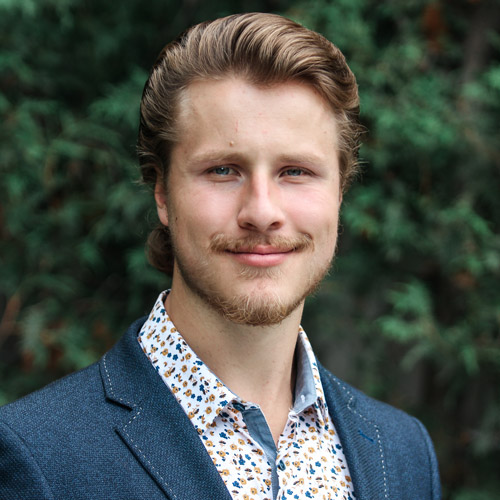
Adaptive sport is not something that has to be, nor should it be, delivered in a segregated way. Through slight modifications of delivery, adaptive sport can be inclusive of everyone.
Erik Robeznieks
Ted Rogers MBA student

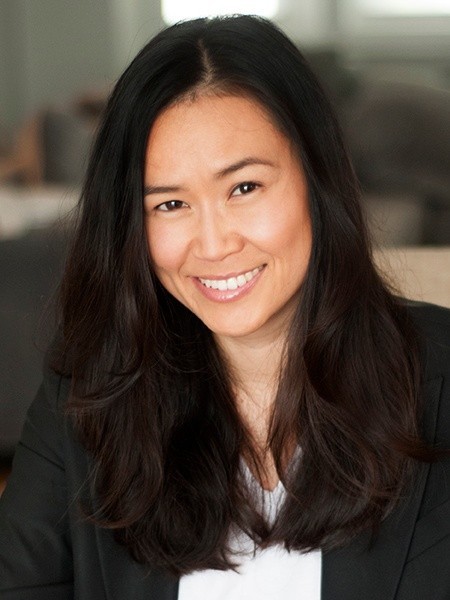
When Dr. Ellen Choi, Assistant Professor, HR Management & Organizational Behaviour, started researching mindfulness during her PhD, she was told her work was “unconventional.” Almost a decade later, the investigation of meditation and related activities is a thriving field of study.
Dr. Choi is particularly interested in how practising mindfulness – the act of being fully present in a given moment – can improve mental health in the workplace. Among her recent projects are two studies that examined how mindfulness could benefit workers in incentive-driven jobs. She found that, in comparison with relaxation exercises, mindfulness training helped to stimulate participants’ creativity, while also reducing the levels of pressure that they experienced.
Dr. Choi was part of an international research team that presented their project at the Academy of Management’s Annual Meeting. They invited participants to take part in short exercises involving either mindfulness or relaxation techniques. Participants were then given tasks that evoked their creativity, such as coming up with different uses for items like toothpicks or bricks. Different rewards were offered as incentives to separate groups.
The researchers found that, overall, the participants who had been through the mindfulness exercise did better at the task than those who had not, suggesting that the practice is compatible with work in a pressurized environment.
Another line of Dr. Choi’s research aims to pinpoint the active ingredients of mindfulness that aid our well-being. In one recent project, she worked with healthcare professionals to see if mindfulness could help them to cope with occasions when they made errors. Initial findings suggest that mindfulness can help people to accept and learn from their mistakes, and reduce fears of looking bad.
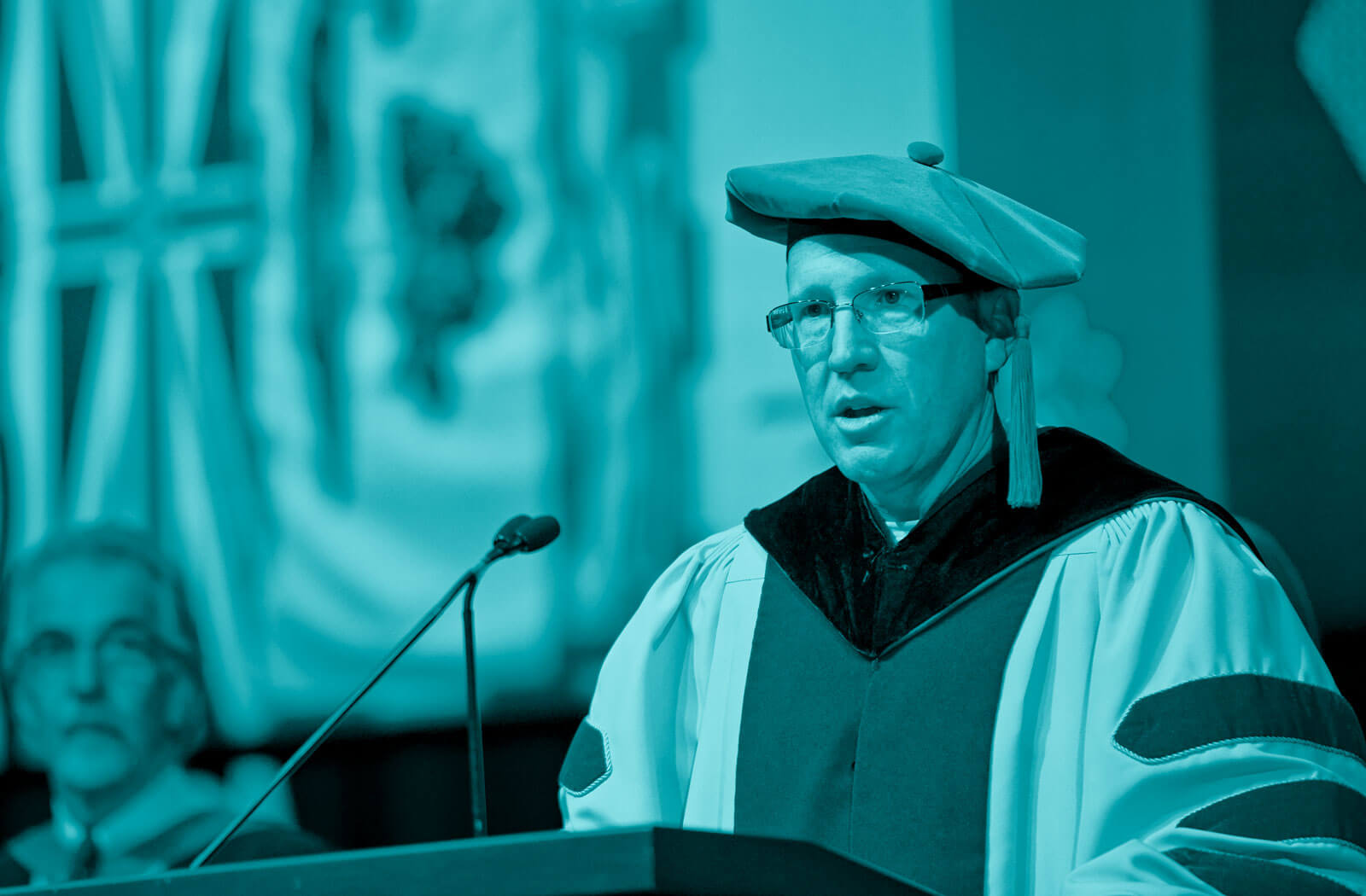
The reputation of our school is built on the hard work and success of our community. Members of the Ted Rogers School have received numerous awards and accolades both within Ryerson University and beyond, which has raised our reputation. Our faculty members have been named to prestigious lists, our students have competed in and won case competitions and our staff members have been recognized for the important support they provide to help students succeed.
Several Ted Rogers School faculty, staff and alumni have been named to prestigious lists in their respective fields. Here are a few examples:
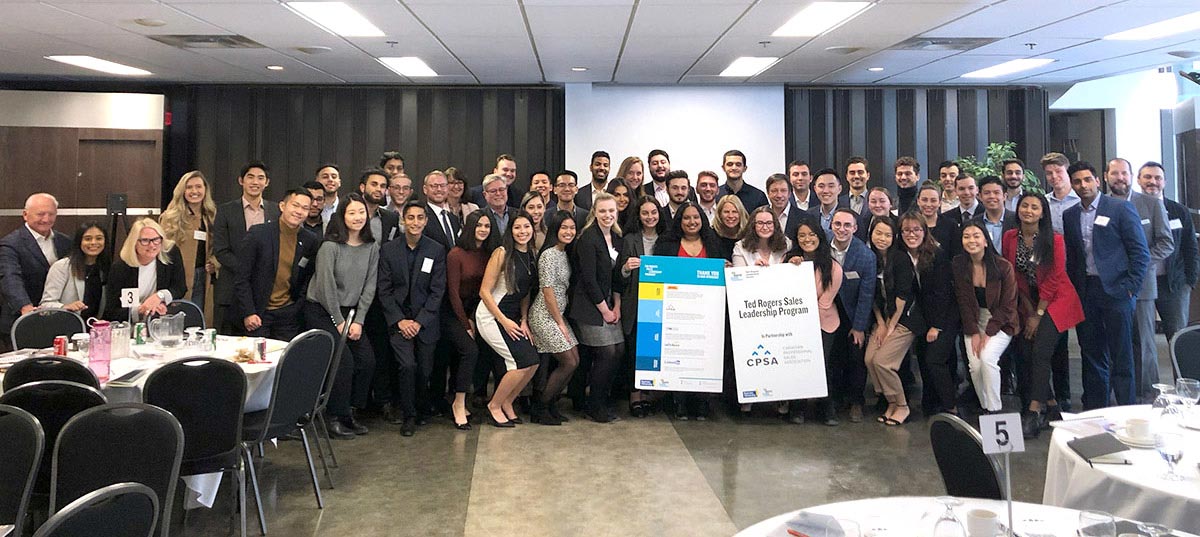
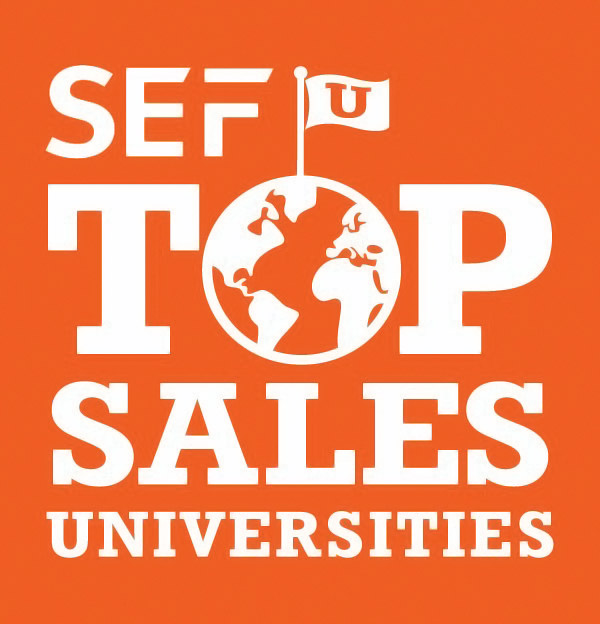
The Ted Rogers Sales Leadership Program made the Sales Education Foundation’s “Top Universities for Professional Sales Education” list for the third year in a row.
The Ted Rogers Students’ Society (TRSS) and the group’s President, Brad Wells, were big winners at the Canadian Association of Business Students’ (CABS) annual conference, receiving the Most Outstanding Business Students’ Association honour and the All-Star President Award, respectively.
“TRSS remains dedicated to enhancing the undergraduate experiences of students, and we are very grateful for these CABS awards which recognize our efforts,” says Wells. “These awards are a celebration of all of the hard work and dedication from the TRSS Executive Committee and Board, our 52 committee members as well as the 930+ student leaders from the groups under the TRSS umbrella. Without them, along with the students, none of this would have been possible.”
Representing over 70,000 business students from 26 universities in Canada, CABS strives to develop superior talent and leadership within business students. Its annual Roundtable Conference is one of the country’s largest and most prestigious student-run conferences which connects student leaders and celebrates the excellence of business students and their associations with awards.
At the 2021 virtual event, TRSS was named the Most Outstanding Business Students’ Association, an award given to one CABS member society that made the biggest strides with respect to their management and execution of their operations in the current operating year.
“We are so proud that CABS has recognized something we have known for a long time – Ted Rogers School students are the very best and TRSS exemplifies everything that makes our students so outstanding,” says Dr. Al Goss, Associate Dean, Students at the Ted Rogers School.
In addition, Wells was given the All-Star President Award, which is presented to the business student association President who best exemplifies passion, dedication to their group and going above and beyond their typical role or job description for the betterment of their business school student communities.
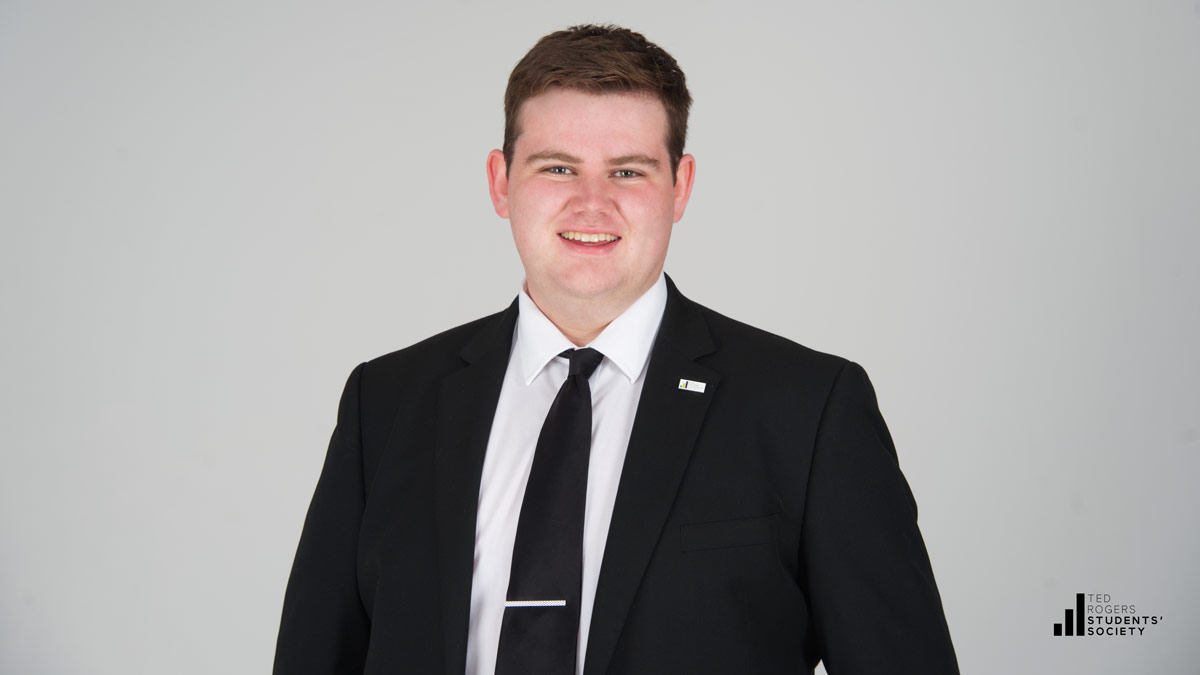
Brad Wells, President, Ted Rogers Students’ Society
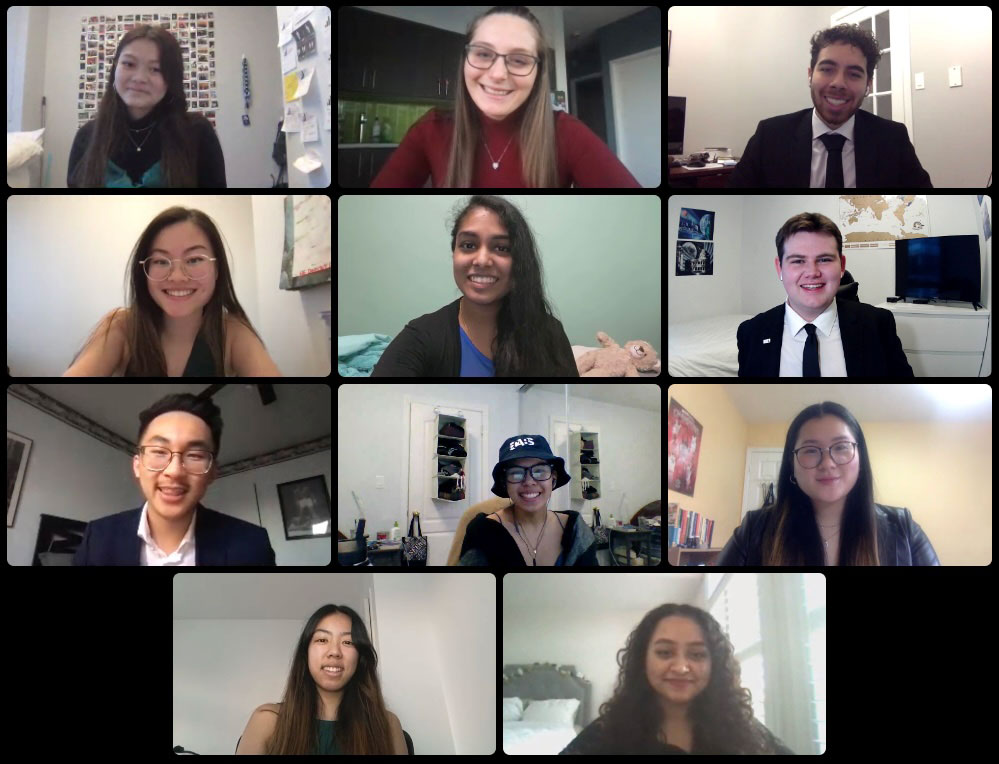
Ted Rogers Students’ Society at the Canadian Association of Business Students’ conference
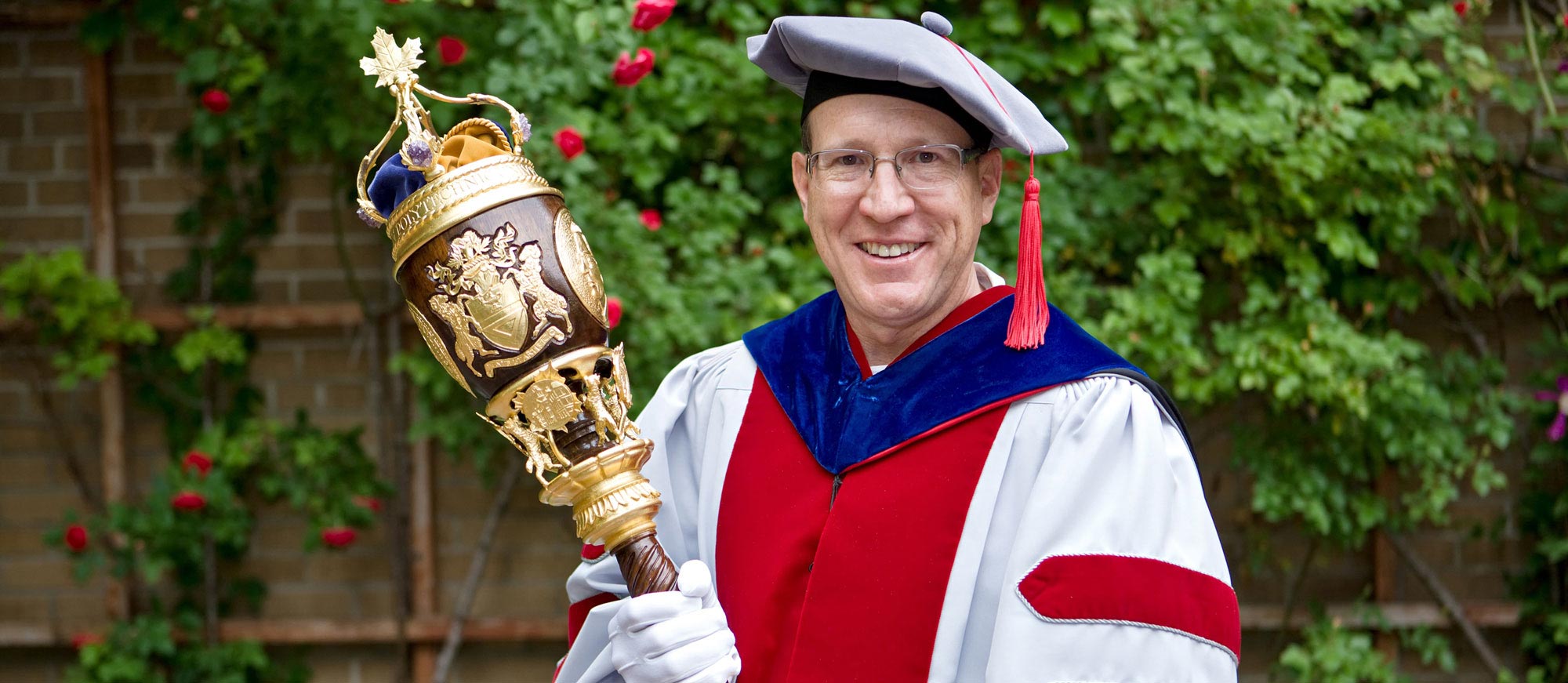
Dr. Steven Gedeon, a highly-regarded entrepreneurship educator and expert who has helped to make Ryerson University synonymous with entrepreneurship, was the recipient of the 2021 Chancellor’s Award of Distinction at Ryerson University.
This award is presented to an educator recognized within the Ryerson community as an exemplary model of life-long career commitment to teaching and learning demonstrated by their significant contributions to advancing teaching and learning at the university, sustained educational leadership and an outstanding and sustained record of teaching excellence.
Dr. Gedeon, Associate Professor of Entrepreneurship & Strategy, first became involved with student entrepreneurship at Ryerson in 2006 as a faculty advisor for Enactus Ryerson, a student-led nonprofit organization that empowers students to use entrepreneurship for social change. And it was Enactus that brought entrepreneurship to the attention of the university President.
The President and Provost later approached Dr. Gedeon to create a program to motivate students and alumni to discover innovations and act on them to start new ventures. The result was the Ryerson Entrepreneur Institute (REI), which he founded in 2008.
Dr. Gedeon has grown the REI to become a global leader in co-curricular student learning. He has inspired, funded and supervised dozens of student projects around the world, including food security in Nunavut, water purification in Egypt and India and sustainability in Peru. His Enactus student teams have won over 50 regional and national entrepreneurship championships as well.
In addition, Dr. Gedeon co-founded Start Smart, Startup School and Food Innovation Hub at Ryerson, and has made significant contributions to the Science Discovery Zone and Legal Innovation Zone at the school.
“I think every university needs to find its niche,” Dr. Gedeon explains. “With the largest entrepreneurship program in the world, 10 on-campus incubators, 75 different entrepreneurship courses and among the largest entrepreneurship faculties, Ryerson can distinguish itself on the world stage in the field of entrepreneurship.”
As Chair of the Entrepreneurship Curriculum Committee for many years, Dr. Gedeon has also helped transform the entrepreneurship degree program, implement accreditation and create new courses to support social innovation, experiential learning and zone education across campus.
Dr. Gedeon says that he is honoured to receive the Chancellor’s Award of Distinction. “I originally came to Ryerson because of its focus on high-quality teaching,” he explains. “Awards like this are tangible proof that Ryerson cares about teaching, and honours and recognizes this important contribution.”
With the largest entrepreneurship program in the world, 10 on-campus incubators, 75 different entrepreneurship courses and among the largest entrepreneurship faculties, Ryerson can distinguish itself on the world stage in the field of entrepreneurship.
Dr. Steven Gedeon
Associate Professor, Entrepreneurship & Strategy
Ted Rogers School students have owned the podium at several national and international case competitions over the past year. Here are a few of their victories:
Real Estate Management students Jonathan Droulias, Corwin Wong, Max Dimov and Jonathan Okubay were crowned champions at the 2021 Undergraduate Real Estate Case Competition (URECC).
Business Technology Management students Alicia D’Souza and Maria Beauts finished first in Ethics at the 2021 Inter-Collegiate Business Competition.
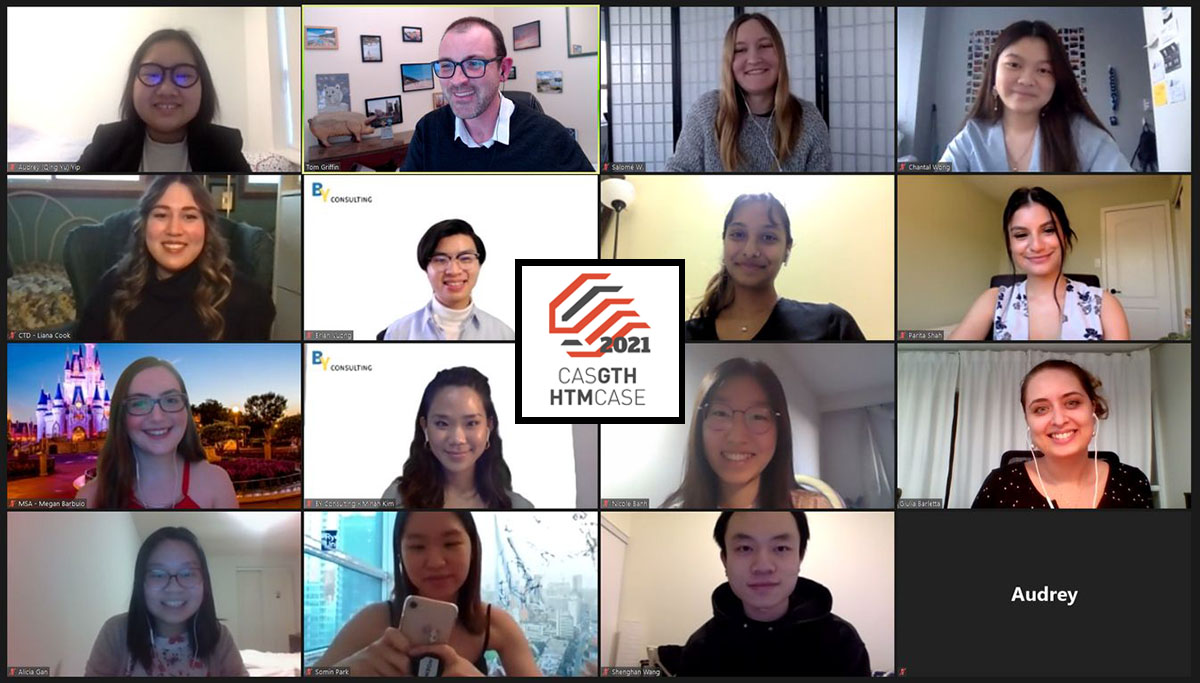
HTM students participating in virtual Hospitality & Tourism Management Case Competition
Hospitality and Tourism Management students came in first in both the hospitality and tourism categories at the 2021 Hospitality & Tourism Management Case Competition. Minah Kim, Brian Vuong and Chantal Wong received first place in the Hospitality category, and Liana Cook, Shenghan Wang and Salomé Wysocki received first place in the Tourism category.
The Ted Rogers MBA team made up of Dani Gomez Ortega, Yudi Li, Muhammad Maqsud Hussain and Caitlin Campbell tied for top spot at the 2021 Reimagining Women in Leadership MBA Case Competition.
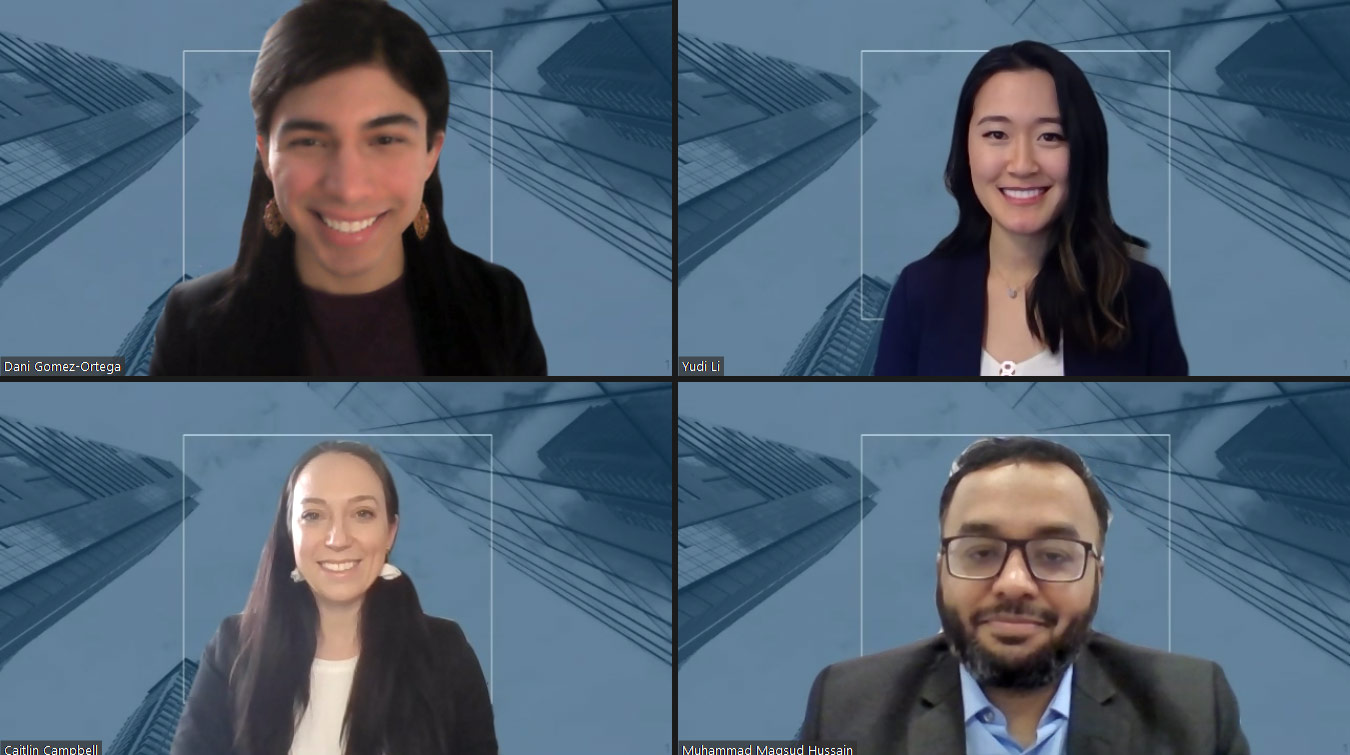
Top: Dani Gomez Ortega (left), Yudi Li (right); Bottom: Caitlin Campbell (left), Muhammad Maqsud Hussain (right) at Reimagining Women in Leadership MBA Case Competition
Dr. Deborah Fels and Margot Whitfield won a 2021 Alan Shepard Equity, Diversity and Inclusion Award for their work with Ted Rogers School’s Inclusive Media and Design Centre (IMDC). The award recognizes the outstanding achievements of individuals or teams who advance equity, diversity and inclusion through their contributions within the Ryerson community. The IMDC challenges stereotypical notions of accessibility, breaking down barriers to technology, education, entertainment and healthcare. The pair is creating innovative solutions that meet a range of diverse human sensory experiences and perceptions, along with differences in culture, gender, age, place and education.
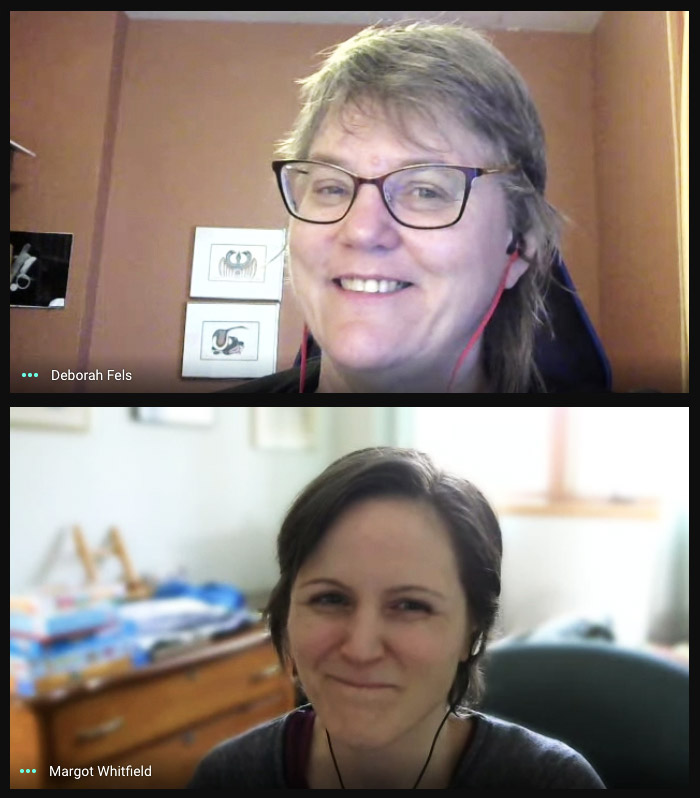
Dr. Deborah Fels (top) and Margot Whitfield (bottom)
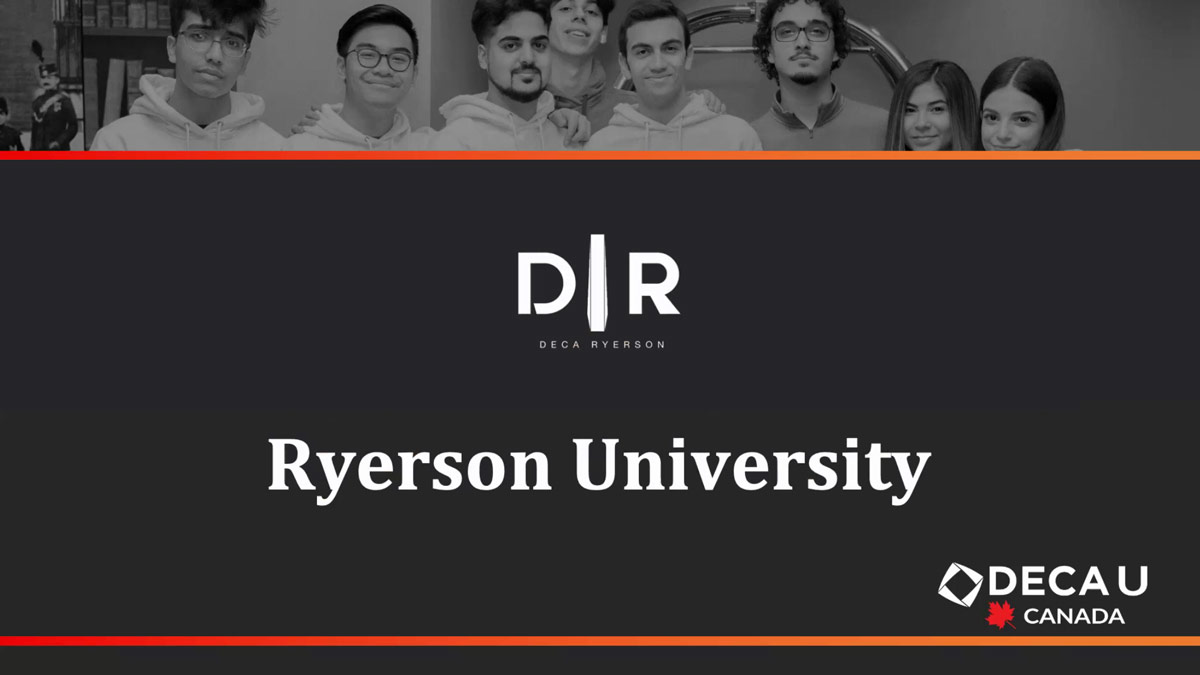
DECA Ryerson won the Chapter of the Year award at the 2021 DECA U Canada National Conference. DECA is an international student network focused on instilling professionalism in young people and preparing them for the challenges of business. DECA Ryerson, which had 158 students competing at the event (145 from the Ted Rogers School), is a chapter of students who strive to reach the height of academic, social and professional success. The Chapter of the Year award is presented to the university with the most engaged delegates and that best exemplifies perseverance and a dedication to training and developing case cutting skills in their delegates.
Business Technology Management student Eric Muellejans is the first Ryerson University scholar selected as a prestigious Schwarzman Scholar, chosen for their exceptional leadership and understanding of global affairs. Muellejans is an advocate for health entrepreneurship, serves on health investment trade missions for Canada and is the student chair for the Business-Higher Education Roundtable. He also helped Prime Minister Justin Trudeau create the Prime Minister’s Youth Advisory Council. The Schwarzman Scholarship is one of the world’s most esteemed graduate fellowships located at Schwarzman College at Beijing’s Tsinghua University. For the Class of 2022, 154 scholars were picked from more than 3,600 applicants around the globe.
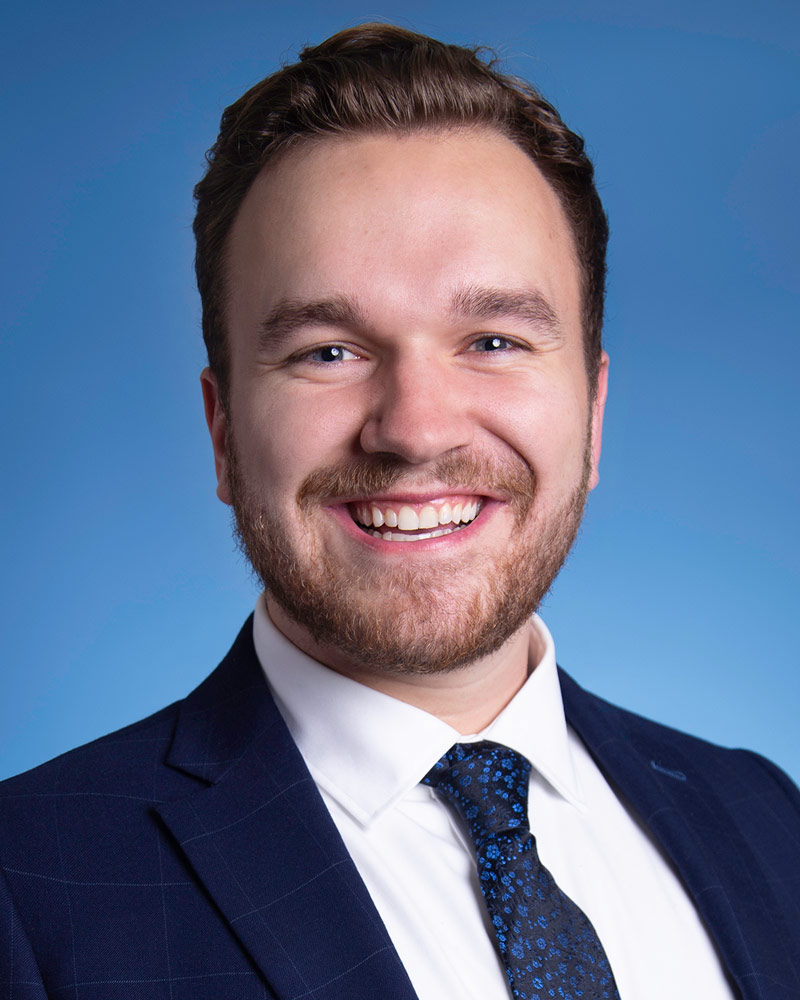
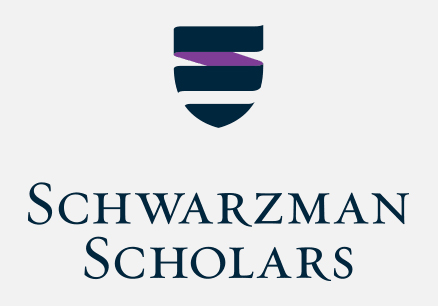
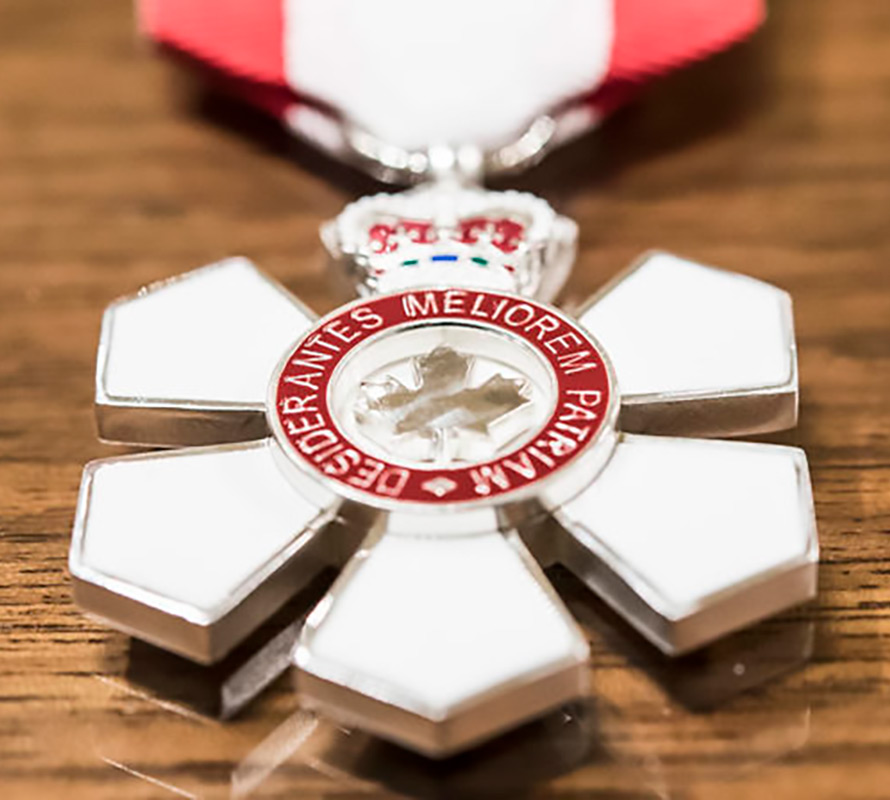
Members of the Ted Rogers School community were recognized in 2020 for their valuable contributions to society, receiving some of the most prestigious honours in the country and the province – the Order of Canada and Order of Ontario. Dr. Brian Segal, Distinguished Visiting Professor, and Peggy Nash, Chair of the Centre for Labour Management Relations (CLMR) Advisory Committee, were both named Members of the Order of Canada. Donor Sally Horsfall Eaton, who through the Eaton Foundation is helping to support the Eaton Chair in Retailing, was also named a Member of the Order of Canada. Distinguished Visiting Professor Hershell Ezrin was appointed to the Order of Ontario.
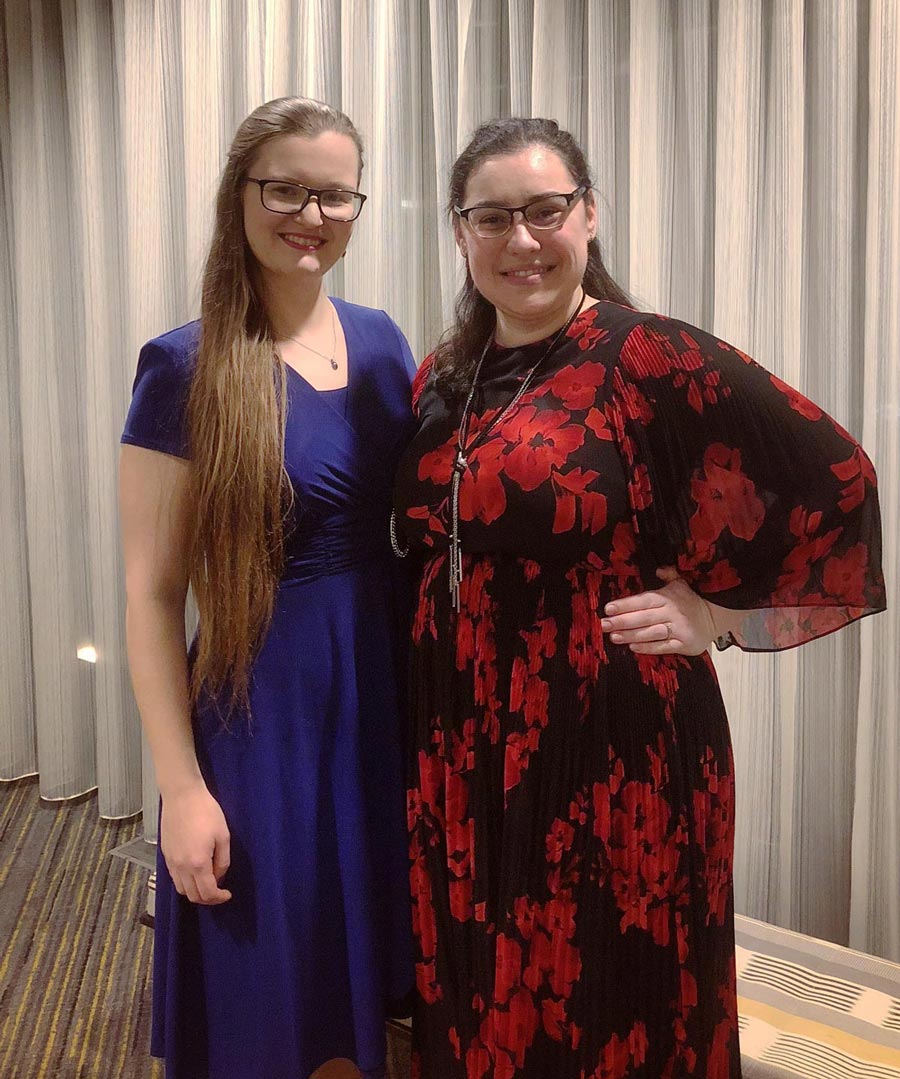
Jane (Evgeniya) Tsekhovaya (left) and Nina Sulkin (right)
Two members of the Academic Success Centre (ASC) team have been recognized for their contributions to higher education by the Learning Specialists Association of Canada (LSAC).
Nina Sulkin and Jane (Evgeniya) Tsekhovaya were both recognized by LSAC, a national association for professionals who focus on the application of learning theory in higher education. The group’s National Awards acknowledge the contributions of its members to their institution, the profession and to the LSAC.
Sulkin (they/them), ASC Student Success Facilitator, won the LSAC Emerging Professional Award. This award is presented to an individual who has worked in the learning specialist industry between two and six years and has demonstrated a unique approach to learning skills programming, services or research that resulted in a substantial impact at their institution.
Sulkin has been part of the ASC team for four years, providing remarkable training and support to student staff members and delivering programs with effective learning strategies to students. They also co-chaired Ted Rogers School’s Pre-Orientation Program in summer 2020.
Tsekhovaya (she/her), ASC Lead Peer Academic Coach, won the LSAC Student Award. This award is presented to a student who has had a positive impact on learning skills programming, services or research at their institution. Over the past four years, Tsekhovaya (Economics and Management Science Management major; Finance and French minors) has made outstanding contributions to and has had a positive impact on learning skills programming and services within the Ted Rogers School.

Imagine what we can do together, with your support. We’d love to connect with you about how your gift can truly make a difference in advancing our mission of shaping diverse and socially conscious leaders and impactful research. Learn more about how you can support our work.
Toronto Metropolitan University
350 Victoria Street
Toronto, Ontario M5B 2K3
torontomu.ca/tedrogersschool
Contact us
Debra Rughoo
Writing and Content Specialist,
Ted Rogers School of Management
Danielle Bartel
Marketing & Design Coordinator,
Ted Rogers School of Management
Martha Castillo
Web Developer,
Ted Rogers School of Management
Maya Paidi
Research Support Specialist,
Ted Rogers School of Management